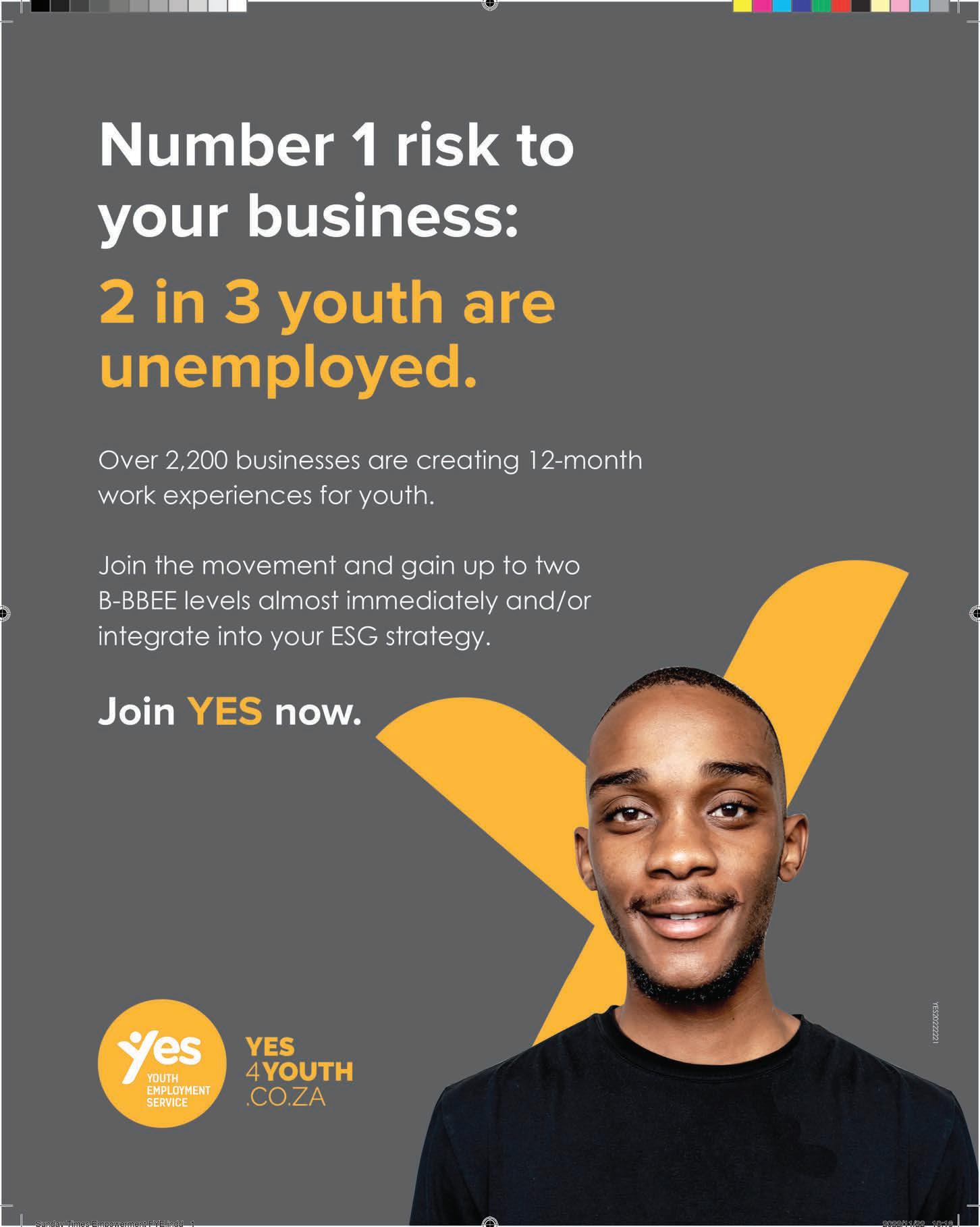
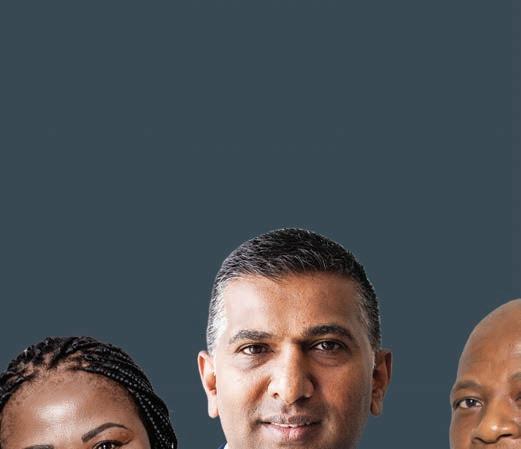


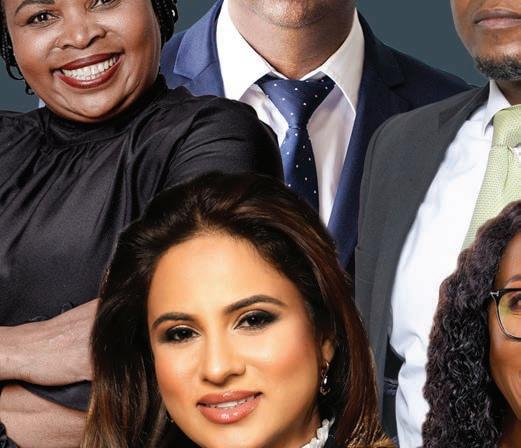















NOVEMBER 2022
IN ASSOCIATION WITH THE BLACK MANAGEMENT FORUM
www.businessmediamags.co.za
Top (from left): Fatima Newman, Pat Semenya, Kevin Govender, Kganki Matabane
Bottom (from left): Esethu Mancotywa, Mariam Cassim, Dr Lulu Gwagwa
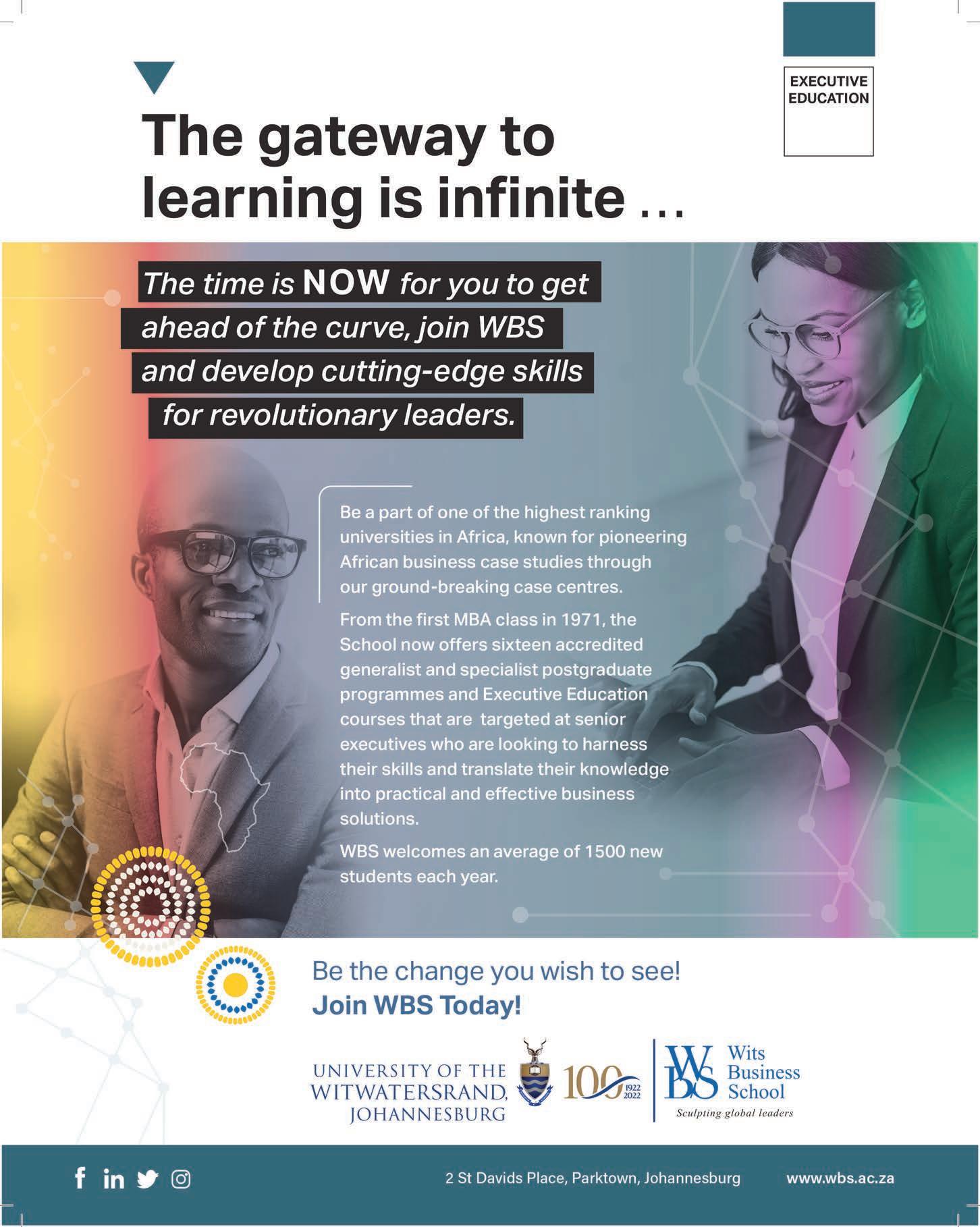
PUBLISHED BY
Picasso Headline, a proud division of Arena Holdings (Pty) Ltd, Hill on Empire, 16 Empire Road (cnr Hillside Road), Parktown, Johannesburg, 2193

Postal Address: PO Box 12500, Mill Street, Cape Town, 8010 www.businessmediamags.co.za
EDITORIAL
Editor: Ryland Fisher
Content Manager: Raina Julies rainaj@picasso.co.za

Contributors: Trevor Crighton, Dineo Faku, Xolile Kunene, Esethu Mancotywa, Itumeleng Mogaki, Monde Ndlovu, Pat Semenya, Tiisetso Tlelima
Copy Editor: Brenda Bryden
Content Co-ordinator: Vanessa Payne
DESIGN
Head of Design: Jayne Macé-Ferguson
Senior Designer: Mfundo Archie Ndzo
Advert Designer: Bulelwa Sotashe
Cover Images: Supplied
SALES
Project Manager: Jerome van der Merwe jeromem@picasso.co.za | +27 21 469 2485 I +27 082 668 1496
Sales: Frank Simons
PRODUCTION
Production Editor: Shamiela Brenner
Advertising Co-ordinator: Johan Labuschagne
Subscriptions and Distribution: Fatima Dramat, fatimad@picasso.co.za
Printer: CTP Printers, Cape Town
MANAGEMENT
Management Accountant: Deidre Musha


Business Manager: Lodewyk van der Walt General Manager, Magazines: Jocelyne Bayer
Copyright: Picasso Headline.

No portion of this magazine may be reproduced in any form without written consent of the publisher.
The publisher is not responsible for unsolicited material. Empowerment is published by Picasso Headline. The opinions expressed are not necessarily those of Picasso Headline. All advertisements/advertorials have been paid for and therefore do not carry any endorsement by the publisher.
MISTAKES, CHALLENGES AND LESSONS IN THE SPOTLIGHT
Empowerment is a topic many corporate leaders prefer not to talk about because they cannot see its value. This sometimes leads to many of them having a jaundiced view of something that they should embrace because, if implemented properly, empowerment and transformation can only benefit them in the end.
Transformation can have a marvellous effect on business. With a more representative staff, with values of tolerance and respect, business can only benefi t.
In this edition of Empowerment, we try to look at some of the raging debates around
this topic. Have we learned any lessons over the past almost three decades? Are we able to correct the mistakes we have made? What are some of the challenges black leaders have faced regarding transformation and empowerment?
We also look at empowerment in a world where environmental, social and governance and the United Nations’ Sustainable Development Goals are taking on more prominence, and a world driven by the digital economy.
Ryland Fisher Editor
23 THOUGHT LEADERSHIP: RISK AND CORRUPTION
BLACK MANAGEMENT FORUM
5 Esethu Mancotwya, BMF acting president, discusses the importance of thought leadership to the transformation agenda.
6
Monde Ndlovu and Xolile Kunene discuss thought leadership that is not persuaded by heart leadership, and how it impacts the empowerment struggle.
10 LEADERSHIP
Three business leaders share their thoughts on empowerment, the challenges they’ve faced, how they’ve navigated the complexities, and the importance of getting buy-in from all stakeholders.
15 GENDER EMPOWERMENT
Women at executive level continue to be under-represented and underpaid, and face many challenges both in and out of the workplace.
18 DIVERSITY AND INCLUSION
What some companies are doing to place inclusion and diversity at the top of their agenda to improve their people’s lives and economic prospects.
Risk management specialist Pat Semenya shares that what is needed to effect ef cient and meaningful change to counter the impact of corruption is courage and risk management.
24 ENVIRONMENTAL, SOCIAL AND GOVERNANCE
CEOs of South African companies need to step up and integrate environmental, social and governance considerations into their corporate and investment initiatives and activities.
32 SUSTAINABILITY
How some companies are adopting and personalising the Sustainable Development Goals to focus on sustainable economic growth, productive employment and drive societal impact.
34 DIGITAL EMPOWERMENT
Connecting all South Africans to the internet is a noble aim, but digital literacy and technical skills should be prioritised; you can’t have one without the other.
36 THOUGHT LEADERSHIP: BEE BASICS
it’s key that business owners familiarise themselves with the ve B-BBEE basics.
FROM THE EDITOR EMPOWERMENT 1
Contents 10
16
POLMED CHAMPIONS DIVERSITY AND EMBRACES HOLISTIC WELLBEING
Women leaders are overlooked by many global organisations for key positions. This is one of the main causes of the lack of diversity within the healthcare industry and inequity in health outcomes. The two are inseparable. At Polmed, women are promoted to important decision-making positions in the organisation, and this is something the organisation is very proud of.
Polmed is the South African Police Service (SAPS) Medical Scheme. Only SAPS employees and their dependants are eligible for membership. The scheme is aligned with the United Nations’ (UN) goals to eliminate inequalities in the healthcare industry. Those best placed to eliminate inequalities are close to both the problem and the solution. This is why at Polmed, scheme members elect 50 per cent of the trustees – 40 per cent of whom are women. Polmed’s workplace diversity and inclusion policies are designed to uplift women: 63 per cent of the staff are women, and women also head up the organisation’s leadership structure.
ALL IS NOT EQUAL
The right for all to have access to healthcare is a fundamental human right enshrined in our
AS PART OF ITS NEW PREVENTION STRATEGY AIMED AT IMPROVING ITS INSUREDS’ OVERALL HEALTH AND WELLBEING, POLMED HAS ESTABLISHED LONG-TERM WELLNESS CENTRES.
Constitution. The World Health organization’s (WHO) own Constitution also underscores this principle.
Global Health 50/50, an independent, evidence-driven initiative established to advance action and accountability for gender equality in global health, published a report in 2020 indicating that 200 of the most influential global health organisations are generally overseen by males, mainly from western countries. Most are graduates of elite institutions in the United Kingdom and United States of America, but make decisions affecting low- to middle-income countries. It further emphasises that boards wield power in decision-making as they are the ones that elect an organisation’s leadership, establish the strategic direction, and oversee financial decisions, especially when it comes to which programmes the organisation will prioritise.
The findings also show that, in these organisations, women from low-and middle-income countries are still overlooked, and only constitute 9 per cent of the directors, despite making up 42 per cent of the global population.
This trend persists despite the considerable research proving that women are far more effective leaders. McKinsey & Company, in partnership with Leanin.org, found that women leaders in the healthcare industry were better than their male counterparts in the following aspects:
• Providing emotional support to employees: 19 per cent of men compared with 31 per cent of women;
• Considering the wellbeing of employees: 54 per cent of men compared with 61 per cent of women;
• Helping employees navigate work-life challenges: 24 per cent of men compared with 29 per cent of women;
• Intervening to prevent or deal with employee burnout: 16 per cent of men compared with 21 per cent of women; and
• Leading and supporting diversity, equity, and inclusion efforts: 7 per cent of men compared with 11 per cent of women.
NEW BUSINESS MODEL FOCUSED ON HEALTH MAINTENANCE
The five-year strategic plan Polmed established in September 2021 reflects the abovementioned research. The board of trustees approved a strategic initiative wherein Polmed changed its

2 EMPOW E RM E NT ADVERTORIAL POLMED
A team that reflects gender equality is much more innovative, this is why empowerment and gender equality are important to us, writes NEO KHAUOE , principal officer at Polmed
Polmed has demonstrated through its inclusion policies that diversity can be a crucial differentiator and provide a competitive advantage.
About Polmed Medical Aid


Polmed is a closed medical scheme registered under the Medical Schemes Act (Act 131 of 1998). It is offered to those men and women who served and are currently serving in the South African Police force.
A board of trustees ensures the optimal operation of the scheme. The board comprises 14 individuals – 7 are elected and 7 are appointed by the National Police Commissioner. The principal of cer, supported by scheme management, is responsible for executing the directives of the board and ensuring that Polmed offers its members and their bene ciaries excellent service and bene ts.
business model from a fully-fledged insurance model to a Health Maintenance Model (HMM). The primary difference between an HMM and an insurance health model is that the HMM focuses more on primary and preventative measures ensuring that members remain as healthy as possible for as long as possible.
The data analytics assessments that the scheme conducted partly infl uenced the new strategy. Polmed noticed a signifi cant increase in mental conditions within its membership, including the members’ young dependants. This strategy aims to support the police and mitigate trauma since many offi cers are exposed daily to physical and emotionally traumatic experiences that threaten their psychological wellbeing.
The WHO’s definition of health states: “Health is a state of complete physical, mental and social wellbeing and not merely the absence of disease or infirmity”. The HMM is designed to help scheme members achieve better mental and physical wellness, which will lead to a police force that is even better equipped to serve the public.
THE ORGANISATION IS INVESTED IN REMAINING A COST-EFFECTIVE MEDICAL SCHEME OFFERING HIGHER INSURED BENEFITS AT A LOWER COST.
psychologist. The GoSmokeFree programme is a six-week support programme with trained GoSmokeFree advisors who also help craft individual plans for members of the programme. As Polmed invests in the long-term health of its members, the scheme provides ongoing support once members complete the programmes.




MAKING HEALTHCARE MORE ACCESSIBLE AND AFFORDABLE
Impoverished rural and outlying areas are mainly affected by the additional health challenges the country faces in unequal access to medical care. Competent leadership is needed to ensure that health resources are fairly distributed.
One of the ways to address this is by introducing mobile clinics and ensuring that community clinics are adequately resourced and well-run. The private sector can play a significant role in bridging the gap.
Partnerships are required to achieve the objective of healthcare for all. To this end, Polmed has partnered with Scriptpharm to reduce the cost of medicine and effectively increase savings for its members. The partnership also makes members’ lives easier as they have access to more than 2 400 accredited network providers throughout the country. Polmed is open to collaboration with organisations that have access to rural communities and are entrenched within these communities. This allows Polmed and its partners to invest back into these communities.
Polmed wants its members to focus on their work and worry less about the cost of healthcare. The organisation is invested in remaining a cost-effective medical scheme offering higher insured benefi ts at a lower cost. Polmed is affordable, even for police trainees who only receive an allowance, thereby increasing access to healthcare to the lowest income earners within SAPS, and more so during their retirement when they need healthcare services the most.
With honest implementation of diversity and inclusion policies, organisations can improve their strategic decision-making and meet the goals for access and equity in the healthcare sector, and improve the overall general health outcomes of the population.

and wellbeing, Polmed
The board has sought a more holistic wellness approach to managing members. Hence, as part of its new prevention strategy aimed at improving its members overall health and wellbeing, Polmed has established long-term wellness centres as a comprehensive service for all members to use for physical examinations, and access to doctors, social workers and psychologists. The wellness centres also focus on helping members lose weight, quit smoking, and improve mental health. The weight management programme is a 12-week intervention plan led by a biokineticist. It gives members access to a dietician and a behavioural
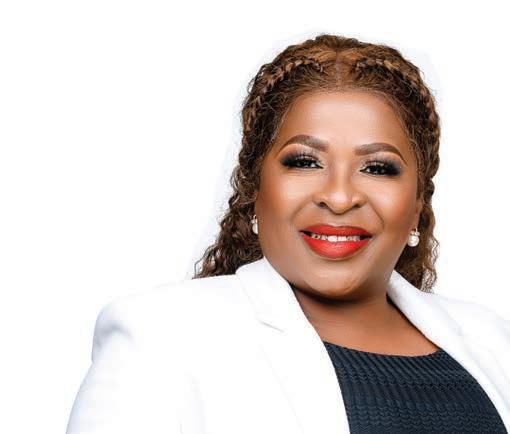
Polmed has demonstrated through its inclusion policies that diversity can be a crucial differentiator and provide a competitive advantage by successfully implementing innovative strategies that offer high benefits at a low cost, thereby improving access and equity in healthcare.
➔ Scan this QR code to go directly to the POLMED website.
For more information: 0860 765 633 polmed@medscheme.co.za www.polmed.co.za

3 EMPOWERMENT
POLMED ADVERTORIAL IMAGES: SUPPLIED
Neo Khauoe

IT’S COMPLICATED
agenda
Unravelling the exclusionary web of our discriminatory past was never going to be easy, nor a simple task. Empowerment, though easy to say, was never going to be easy to achieve. It’s complicated. The decisions we have made in its pursuit have often been messy and resulted in the most unintended consequences. For example, while Broad-Based Black Economic Empowerment (B-BBEE) had the noblest intentions, it is white households that grow their income, and black households that bear the brunt of our unemployment crisis. However, the analysis isn’t as simple as it may appear because B-BBEE isn’t why we have an unemployment crisis to begin with. It’s complicated.
Income relative to white levels (%)
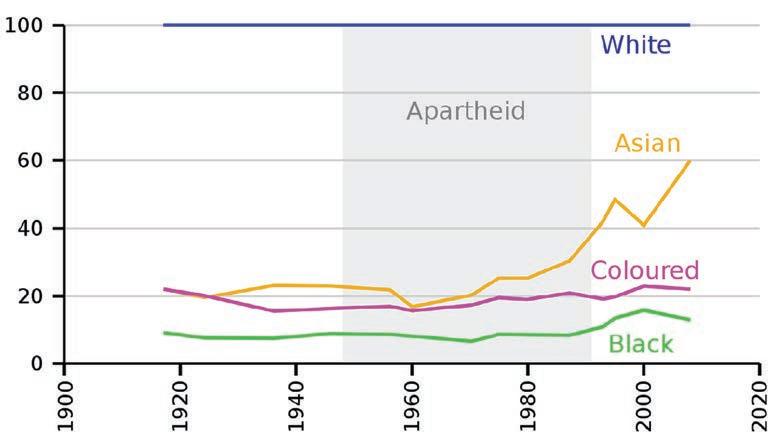
EXPERTISE AND EXPERIENCE IS NEEDED
To solve the challenges we face in pursuing a transformed and equitable society, we need those with relevant expertise in the field and the various sectors of our economy to express themselves and place their ideas on the table. Thought leadership is the expression of ideas that demonstrate expertise in a particular field or topic.
Our responses to these challenges thus far have been inadequate when not impatient. Thought leadership allows us to draw on the expertise and experiences of others to find ways in which we can overcome our challenges.

The Black Management Forum (BMF) encourages thought leadership through its blog (The Agenda) and the African Leader magazine, appreciative of the fact that the solutions to many of our challenges may lie in the experiences of our members and friends. We encourage members to be dedicated to thought leadership and education. To be patient with themselves when developing their ideas and engaging in debate within the structures of the organisation. Through these processes, we are able to refine our thinking around our programmes, our engagements with stakeholders, and the allocation of resources toward our socioeconomic objectives.
Without thought leadership, we are shooting in the dark, and hoping for the best. We are not sure of our objectives. Worse still, we are unsure of the true nature of the problem we are trying to solve, and about where to begin unravelling the vast web of exclusions and disempowerment inherited from the past regime and perpetuated by a government that doesn’t always think through its interventions and how to go about them.
BMF members must be authorities on all things empowerment and socioeconomic transformation. They must know the subject matter like the back of their hand – freeing us all from the realm of conventional wisdom and propelling us toward more novel, creative ways of overcoming our challenges.
The world has changed. The issues we face have become increasingly complex. Thought leaders are innovative and unafraid to raise eyebrows. The subject is narrow with far-reaching implications, and our leaders will need to have intellectual influence and demonstrate pioneering thinking.
We cannot afford to get the empowerment of the previously disadvantaged wrong, and we cannot afford to give up on the transformation agenda.
ACTING PRESIDENT’S NOTE EMPOWERMENT 5
ESETHU MANCOTYWA , acting president of the Black Management Forum, discusses the importance of thought leadership to the transformation
Figure 1: Annual per capita personal income by race group in South Africa relative to white levels.
Thought leadership is the expression of ideas that demonstrate expertise in a particular field or topic.
Without thought leadership, we are shooting in the dark, and hoping for the best. We are not sure of our objectives.
Esethu Mancotywa
THE HEART OF THOUGHT LEADERSHIP
The concept of leadership has become a highly contested space, even becoming scientific in its approach. In the material from African Leadership Development, a boutique consulting firm, the word leader comes from the Indo-European root word liet, which denotes the person who carried the flag in front of an army going into battle. This person usually died in the first enemy attack, and his sacrifice would alert the rest of the army to the location of the danger ahead. Therefore, leadership is no small matter as we apply this approach – your location signals to others what lies ahead. Leadership is therefore anchored by the courageous act of living a life of self-sacrifice. This is the beginning of “heart leadership”, where a leader enters territories first and is willing to die for the cause that has been clearly articulated.
The late former BMF president Lot Ndlovu said: “South Africa belongs to all who live in it, but it belongs more to those who love it, and this should include the middle class, a committed black middle class.” Beyond belonging to a country, is the test of loving and being committed to it; this is the challenge issued through the timeless words of Ndlovu. There is a popular saying, “put your heart into it if you seek superior results in your process”. Others use the heart concept to highlight the lack of presence or depth, others highlight the lack of life itself if the heart is not in it. The heart of anything is the centre of influence and purpose, without which, no real progress can be made.
HEART BEFORE THOUGHT
Thought leadership needs to be preceded by heart leadership. Briefly, thought leadership is the ability to generate ideas and insights that can transcend the norm and offer alternatives in the main. The quality of thoughts determines the quality of ideas. What informs the quality of thoughts is what the mind is exposed to daily. Reading, writing, thinking, observing, and relating with others all play a crucial part in the development of thought leadership.
Without thought leadership that is persuaded by heart leadership, it might not be feasible to champion and triumph over the empowerment struggle. Leadership ought to primarily rest on the interest of the greater society, rather than being driven from a self-centred perspective. The heart of leaders should be about transforming and empowering others, an act requiring leaders to be selfless for the betterment of all.
Leaders such as Nelson Mandela and Olivier Tambo dedicated their lives to the liberation of African people. Some leaders were even prepared to die for an idea that was going to emancipate the people and breed a new era whereby people would have equal opportunities. This was a clear act of leaders driven by heart leadership.
SELF-CENTRED LEADERSHIP LEADS TO SOCIOECONOMIC ILLS
Currently, greed and self-centeredness are widely observed, whereby leaders think about how to advance their self-interest, manipulate, and redirect resources into their own hands, leaving society to suffer. This breeds social
ills and contributes to an unstable economic state. There is less time dedicated to critical thinking that leads to the generation of ideas pertinent to solving the empowerment and transformation struggle.
Frameworks and policies designed and implemented to advance empowerment are in reverse as leadership has lost its heart. To fully realise the objective of reaching critical mass, leadership must be dedicated to a cause and critically engage with ideas that seek to advance the interests of all, for the betterment of all. The true test of empowerment, as stated by Lot Ndlovu, will be whether we love this country or not. This quality of thought leadership must be birthed by a love for the country, its people, and its future success. The heart of empowerment is empowerment that flows from the heart.
*Monde Ndlovu is a consultant at African Leadership Development and Xolile Kunene is the BMF’s head of Thought Leadership, Research and Programmes.

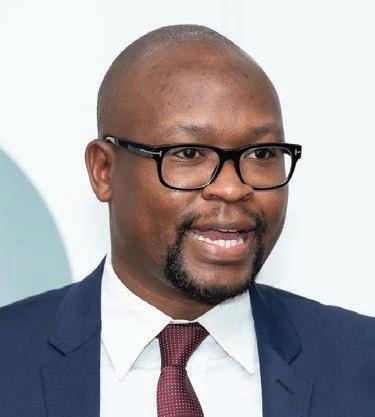
BLACK MANAGEMENT FORUM IMAGES: SUPPLIED EMPOWERMENT 6
MONDE NDLOVU and XOLILE KUNENE write that leadership must be dedicated to a cause and critically engage with ideas that seek to advance the interests of all, for the betterment of all
Leadership ought to primarily rest on the interest of the greater society, rather than being driven from a self-centred perspective. The heart of leaders should be about transforming and empowering others.
Monde Ndlovu
Xolile Kunene

A DECADE OF TRANSFORMATION
A look at bp Southern Africa’s journey to greater diversity throughout the value chain, by bp Southern Africa CEO TAELO MOJAPELO

At bp Southern Africa (bpSA), we are committed to empowering historically disadvantaged South Africans as catered for in the South African Petroleum and Liquid Fuels Industry Charter. In line with this, we continuously review our business model to be more inclusive in every aspect – from our corporate culture to our partnerships. We have been on a transformation journey here at bpSA, with a sharpened focus on gender diversity throughout our business, which includes our workforce, dealer network and enterprises.
OPPORTUNITIES IN A DISRUPTIVE ERA
While transformation is a business imperative to help redress economic disparities, it is also increasingly about ensuring that we have the required future-fit skills to respond to the disruptive pressures we face. The digital revolution, for example, will undoubtedly permeate every area without exception. These challenges invariably create opportunities for women as businesses repurpose and reinvent to be relevant in the future.
I believe that the fourth industrial revolution will present a unique and unprecedented opportunity for women to participate fully, and likely have a leading role, in the changes that will
take place. The scarcity of skills will level the playing fields and force industries to be more inclusive and break the proverbial glass ceiling.
South African business needs to recognise this and place women at the heart of preparations for the anticipated shifts. To do so, the country’s policies need to foster a culture of inclusivity and business leaders need to drive programmes systematically to accelerate the relevant skills and ensure we build a new, robust pipeline of female talent that will be at the centre of this growth. Industries need to provide relevant skills development and training, improve recruitment and retention policies and ensure access to finance and capital for entrepreneurs.
DRIVING GENDER DIVERSITY WITHIN OUR WORKFORCE
As part of our Diversity, Equity & Inclusion (DE&I) objective to build an inclusive workplace environment, we continue to strengthen our programmes to increase female representation within our workforce.
This intent is evident in our recruitment and retention policies. Our recruitment and selection policy emphasises developing from within and augments this with external hiring where there are capability gaps or a lack of resources in the required skills.
Our efforts are starting to bear fruit: today, 50 percent of our key executive roles are filled by women, and bpSA’s overall staff component comprises 45 percent women. We’ve also had two women at the helm successively, and since 2011, a woman has held the position of board chairperson.
A FRAMEWORK FOR ACTION: DEVELOPING AN ENABLING ENVIRONMENT
We’ve successfully ensured gender empowerment in key areas that go beyond diversity scorecard requirements:
• Our ‘Hiring Inclusively’ recruiting principles uses existing market availability data for women and other under-represented groups to help bpSA achieve greater diversity in candidate slates and interview panels.
• Our leadership development programmes supports the continued growth, development, visibility, and access to opportunities for key talent.
• Mentorship remains critical to the success of leadership development, and gender representation has been creating space for networking, coaching, and mentoring.
ADVERTORIAL BP
•
Relevant platforms and engagements are held throughout the year for women to uplift, inspire and equip each other with relevant resources. This is especially important for students and those in the early stages of their careers.
IGNITING IMPACT: THE 360-DEGREE APPROACH
Our supplier development programme aims to support economic transformation by growing the number of black-owned, black woman-owned and black youthowned businesses that do business with bpSA. Our supplier diversity vision is to build a more equitable and inclusive supply chain that creates shared social and economic value.

We have partnered with small to medium enterprises and leveraged our network, which now includes 43 women-led businesses. Initiatives in this area include:
• The recent sale of the East London terminal to WAASA, a 100 per cent black woman-owned company.
• Our retail transformation programme offers funding opportunities, and we continue to empower more women to become franchisors/operators.
• Training and mentoring programmes for newly appointed business partners.
• Increasing the pool of B-BBEE suppliers in our value chain by creating opportunities for new black entrants (small to medium size enterprises) to be part of the industry.
• One of the notable successes in the supplier development space is in the secondary transport space. We have been working with Makwande Supply and Distribution
(100 percent black woman-owned qualifying small enterprise) since 2016. The company has graduated from the SMME category to a generic company.
These and other examples demonstrate our commitment to facilitating the participation of female entrepreneurs and suppliers within the petrochemical industry.
BUILDING A MORE SUSTAINABLE FUTURE
For impactful gender transformation to come to fruition, structures, processes, organisational policies, and leaders need to integrate seamlessly and become agents of sustainable change.
To this end, bpSA has implemented programmes to facilitate the integration of women into the energy industry through STEM (science, technology, english and mathematics) education development from high school to tertiary level. This is delivered through key strategic partnerships, with the Energy Mobility Education Trust (EMET) being our key implementing agent.
Through EMET, we invest significantly in initiatives specifically aimed at developing infrastructure and educational programmes in underresourced schools.
Through collaboration with various stakeholders, including the government, private sector and educational institutions, EMET contributes towards improving the quality of education in STEM subjects, while developing a pipeline for universities. Over 60 percent of EMET beneficiaries are black females
In the powerful words of Nelson Mandela, “Freedom cannot be achieved unless women have been emancipated from all kinds of oppression”. It is our aim to be a force for change by taking thoughtful action to accelerate diversity in the energy sector, and thus drive meaningful and impactful change for all participants, especially women.
BP ADVERTORIAL
bp Southern Africa CEO, Taelo Mojapelo
UNDERSTANDING EMPOWERMENT
If you ask three business leaders to define empowerment and transformation, you will always get three different answers. This speaks to the complexity of a business imperative that should be fairly simple. However, one thing stands out: the need to always do the right thing. By RYLAND FISHER
Shameel Joosub, Vodacom Group CEO, says that “transformation through empowerment is a means to ensure that all citizens engage meaningfully in the economy of South Africa without carrying the shackles of the past”.

Velaphi Ratshefola, managing director of Coca-Cola Beverages South Africa (CCBSA), says he would define “empowerment as enablement and transformation as change”, while business leader and philanthropist Dr Lulu Gwagwa sees empowerment as “levelling the playing fields, both in the external and internal environment”.
Dr Gwagwa, one of the founders of Lereko Investments and member of President Cyril Ramaphosa’s B-BBEE Advisory Council, says that most companies spend time on the external environment without paying attention to the internal environment, which concerns the individual.
“What is going on with the individual who is being empowered? Can they sustain that, can they show up for themselves? What does it mean for them to be empowered for their own internal transformation?”
Ratshefola says that “transformation is a sustained process of change that requires vision and buy-in by all involved”.
“True empowerment and transformation means diversifying our entire organisation and value chain to ensure it is demographically representative of South Africa. It means including black people (Africans, coloureds and Indians) and, particularly women, in the economic fabric of our economy and not where they have been relegated, in the margins.”
Joosub says that since its inception, Vodacom has “always embraced the ethos of ‘doing what is right’ and remains focused on the spirit of the law rather than just the letter”.
“Nothing we do is simply for the points. What we do as a purpose-led organisation is
to ensure meaningful and sustainable change – in the lives of our employees, customers, suppliers and partners.
“I’m very proud of what we have achieved. Vodacom is one of the most transformed companies on the JSE, with 76 per cent of its workforce being black. In South Africa, black representation at senior levels is at 62 per cent for the 2021 financial year and 67 per cent at executive committee (exco) level. At a Vodacom Group level, 75 per cent of its exco are black. Additionally, 44 per cent of our workforce are women, and the South African Exco is now 50 per cent female.
“Importantly, in June 2018, we introduced the largest black economic empowerment (BEE) transaction – R16.4-billion – in the telecommunications industry to date.
The transaction resulted in YeboYethu (RF) becoming the third-largest shareholder in Vodacom Group. YeboYethu shareholders comprise RBH, Mineworkers Investment Company, Vodacom Siyanda Employee Trust and over 85 000 ordinary black South Africans.
KEY LESSONS
One of the key lessons Vodacom’s Shameel Joosub learned was that it is important to do things right the first time.
“Focus on the impact programmes can bring about and don’t simply chase the points – ensure that everything implemented changes lives for the better and is inclusive for the right reasons.”
EMPOWERMENT 10
Shameel Joosub
“Vodacom has always embraced the ethos of doing what is right and remains focused on the spirit of the law rather than just the letter.” – Shameel Joosub
“I’m very committed to our transformation agenda at Vodacom, this is borne out by the huge strides we have made in our transformation journey and the meaningful changes we have made in the lives of our employees, customers, suppliers and partners.”
– Shameel Joosub
“From 2019, we achieved a Level 1 BEE rating on an annual basis by accelerating a concerted and very focused transformation strategy, based on the principles of meaningful sustainability. Take just one example –procurement. Vodacom spent R38-billion on BEE status companies with level 4 and above, broken down as follows: R14.9-billion to greater than 51 per cent black-owned suppliers, while R18-billion was spent procuring services to greater than 30 per cent black woman-owned suppliers. We also procured services to the value of R6.4-billion from black-owned qualifying small enterprises and exempt micro-enterprises.”
Ratshefola says he was appointed to lead CCBSA following the merger of six bottling entities. “I had to build one organisation, standardise processes, build one culture and drive growth and profi tability, but I committed myself to not only lead a regulatory compliant organisation in relation to Broad-based Black Economic Empowerment (B-BBEE). With the support of my leadership teams, I committed myself to going beyond the scorecard and doing the right thing.
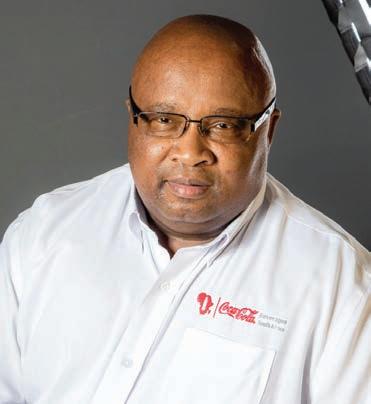
“I knew that it was not going to be easy; like any change, resistance comes with the turf. But if we wanted to be sustainable in the long term and become a truly proudly South African company, it had to be done. What was crucial was taking everyone in the organisation on the journey with us.
“Further, I knew that as leaders, we must be willing to be unpopular. That didn’t deter us from envisioning a future we believed in. We rallied the rest of the organisation to believe in and work towards realising that vision –because you will not achieve it on your own.”
“The opportunity presented by transformation and empowerment is access to markets you might not have explored before. If you look at it purely from a business point of view, you’re leaving a lot of bread on the table by not tapping into this market.”
– Dr Lulu Gwagwa
CHALLENGES
Joosub says the challenges come in the form of legislative uncertainty – for example, if the goalposts move on a regular basis.
“To determine meaningful impact of transformation, you need to look at both the qualitative and quantitative aspects beyond the scorecards, for instance, the impact on employees, customers, suppliers and partners. There is a huge implementation direct cost – often in the billions for us – to
attain levels, as well as programmes aimed at ensuring sustainability, equality, growth and development.”
He says it is important that there should be “better cohesion and synergy between the relevant government departments so that amendments to legislation adapt to the fast-changing technology environment”.
Ratshefola’s major challenges include:
• Ensuring that everyone understands and embraces the spirit and letter of the codes of Good Practice B-BBEE;
• Educating and ensuring that all employees understand why South Africa had to go through the journey of corrective action;
• Creating awareness about the inclusion of all races and women in all leadership areas in the company; and
• Managing the perception that corrective action – empowerment, diversity and inclusion – are at the disadvantage of other races or gender.
These challenges have come about, he believes, because “unfortunately, entrenched belief systems are difficult to change. One is inclined to believe that there are some people who don’t think black people are capable and talented and able to develop strategies and achieve growth. It is an ingrained belief. Hence our work to continuously change these perceptions”.
SA’S B-BBEE ADVISORY COUNCIL
and researcher; 9. Kashief Wicomb, who leads the Progressive Professionals Forum (PPF); 10. Dr Lulu Gwagwa, an academic, spatial development planner and businessperson; 11. Thulani Tshefuta, who represents the community constituency and the youth movement at the National Economic Development and Labour Council (NEDLAC); 12. James Hodge, chief economist of the Competition Commission; 13. Khathu Lambani Makwela, a director of a company in the healthcare sector; and 14. Irene Dimakatso Morati, an internal auditor.
LEADERSHIP EMPOWERMENT 11
Velaphi Ratshefola
The
The
1.
2.
3.
4.
5.
6.
7.
8.
President Cyril Ramaphosa has appointed members of the Broad-Based Black Economic Empowerment Advisory Council. The Advisory Council, which has been appointed for a period of five years, will guide government on intensified transformation of the economy.
president appointed 14 council members, in terms of Section 6(1)(d) of the Broad-Based Black Economic Empowerment Act (Act No 53 of 2003).
council comprises:
Kganki
Matabane,
chief
executive
officer
of the Black Business Council (BBC);
Gloria Serobe, a veteran of black business;
Dr Nthabiseng Moleko, an academic and specialist on industrial development funding;
Sibongile Sambo, who operates a company in the aviation services sector;
Sibusiso Maphatiane, an industrialist who runs his own metal foundry business;
Ajay Lulu, a chartered accountant and B-BBEE specialist;
Louise Thipe, a senior leader in the labour movement;
Makale Ngwenya, a trade unionist
“Transformation is a sustained process of change that requires vision and buy-in by all involved.”– Velaphi Ratshefola
Ratshefola believes that “diversifying our organisations and including black people and women takes nothing away from other races and males respectively. If anything, it adds to the richness and diversity of ideas. It can take our organisations, country and companies to the next level of development. It is unnatural to exclude an entire population group from economic activity. The same goes for women, who make up more than half the population of our country”.
“As leadership, you can’t leave anyone behind no matter how many times you have to go back to explain why it’s important to do it in any country, especially developing countries.
“There is no single country in the world without challenges, historic or otherwise. Ours happens to be correcting the imbalances of the past and ensuring the integration of previously marginalised groups in the mainstream economy of the country. It’s really about making a sustainable economic contribution to the country’s broader developmental agenda.”
Dr Gwagwa’s company has invested in many companies with empowerment challenges.
“Transformation is a lot more than about doing an empowerment deal. Some people believe that once they have concluded a deal they are empowered. Some companies exist alongside society, but not in society. To be part of society requires a lot more than what many companies are prepared to do.
“They are prepared to count the numbers and are happy to reach certain empowerment levels, but they do not change their behaviour. This is the difference between diversity and inclusion. Diversity is just about counting the numbers. Inclusion is about changing behaviours. There is always a big debate about blacks not staying in their jobs, but nobody stops to think that maybe
“We all need to become active shareholders. We need to start putting conditions before we invest, in the same way some funds are doing now. For instance, some funds will only invest if companies have a certain number of women on their boards.”
the reason blacks don’t stay with certain companies is because of the company’s culture. This is the unintended consequence of the scorecard. People are chasing numbers but not necessarily creating an enabling environment.
“The opportunity presented by transformation and empowerment is access to markets you might not have explored before. If you look at it purely from a business point of view, you’re leaving a lot of bread on the table by not tapping into this market.”
THE FUTURE
Joosub says he feels hopeful that we will overcome the challenges posed by empowerment and transformation.
“I’m very committed to our transformation agenda at Vodacom, this is borne out by the huge strides we have made in our transformation journey and the meaningful changes we have made in the lives of our employees, customers, suppliers and partners. Transformation and empowerment are very much built into our purpose as a company and are imperative to our existence and success.”
WHY EMPOWERMENT IS IMPORTANT











Velaphi Ratshefola shares that for CCBSA, they’ve learned the following:

• It is an ongoing journey;
























• It is easy to slip back to a place of “comfort”;










• It must be led from the top;

• It has to be one of the company’s important strategic agendas and not just lip service; and



• Transformation targets have to be set and monitored and measured.
Ratshefola says that the way to deal with empowerment is for everyone to play their part. “Government will not crack this on its own. For segregation to thrive, it had to be supported by policies that enabled it. B-BBEE is a policy whose primary purpose is to lead this country to a path where all races have equal opportunities. Surely, that is a noble course.”
Dr Gwagwa says that sometimes she feels despondent about transformation because it is often dependent on individuals. “That leader might have driven transformation, but when s/he leaves, the company goes back to square one. It is reversible. We need more leaders who are committed to the country and the continent.”
Dr Gwagwa says that investors, including her company, should be doing more to promote transformation in business. “We all need to become active shareholders. We need to start putting conditions before we invest, in the same way some funds are doing now. For instance, some funds will only invest if companies have a certain number of women on their boards. Shareholders are beginning to raise issues around ESG (environmental, social and governance). They should also be raising issues around empowerment.”
LEADERSHIP EMPOWERMENT 12 IMAGES: SUPPLIED
VODACOM’S TRANSFORMATION GOALS
ACCELERATES ITS TRANSFORMATION JOURNEY
CCBSA
“True empowerment and transformation means diversifying our entire organisation and value chain to ensure it is demographically representative of South Africa. It means including black people (Africans, coloureds and Indians) and, particularly women, in the economic fabric of our economy and not where they have been relegated, in the margins.” – Velaphi Ratshefola
– Dr Lulu Gwagwa
Dr Lulu Gwagwa
FIRMLY FOCUSED ON SKILLS AND CAPACITY BUILDING
Motheo TVET College is one of four public TVET Colleges in the Free State, serving the Motheo and Xhariep districts. Professor Dipiloane Phutsisi is the college’s principal and deputy president of the South African Public Colleges Organization (SACPO). When Prof Phutsisi took up the position of principal in 2013, she had a clear vision for the institution: to train a skilled and capable workforce.
Under her leadership, the institution has preserved its past and is busy building its future. The college comprises a central office and nine campuses, namely Bloemfontein, Hillside View, Thaba Nchu, Centre for Entrepreneurship and Rapid Incubator, National Artisan Academy, Plot 32, Botshabelo, Koffiefontein, and Zastron.
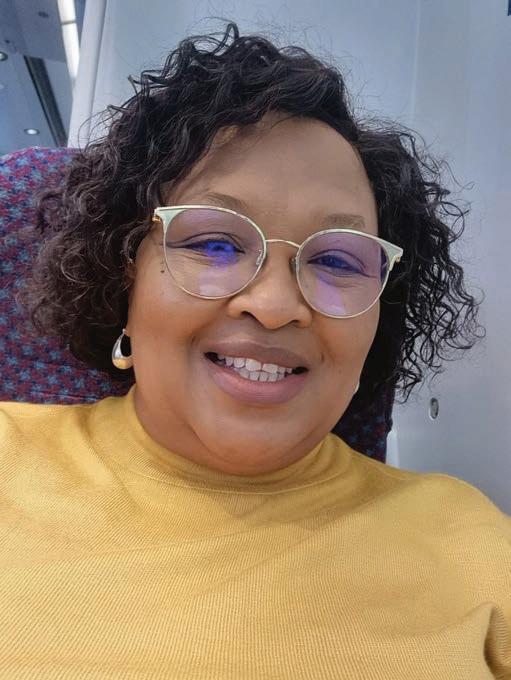
The Bloemfontein campus focuses mainly on business studies NC(V) and Report 191 programme studies. Training of disabled students, such as the deaf, blind and physically impaired, is catered for at this campus. The campus is also well-geared for presenting programmes in tourism and hospitality services and management sciences. The growth in the hospitality services department has been considerable and, as a result, the college has opened the Gateway Restaurant.
The Hillside View campus, situated in Bloemanda township, is eight kilometres from the Central Office. The campus is more inclined towards engineering studies programmes, both NC(V) and Report 191. It offers a selection of programmes in engineering, including automotive mechanics, body repair, electrical engineering and cabinet-making. The campus also boasts sophisticated engineering workshop facilities, including an automotive spraypainting unit accredited by the merSETA. Next year, this campus will introduce robotics programmes: IT and computer science levels 2 to 4, software design and development, and programming robotics.
Despite its rural setting, the Thaba Nchu campus offers programmes in construction sciences,
engineering studies and clothing production. The college, as part of its vision, plans to establish a maritime academy on this campus. The college introduced maritime studies programmes in the 2020 academic year.
TRAINING FOR ENTREPENEURS AND ARTISANS
Motheo TV College has partnered with the Small Business Development and the Small Enterprise Development Agency (SEDA) to offer training and funding for community members and students interested in becoming business owners. The centre provides this opportunity to graduates of the college, unemployed youth graduates, women between the ages of 18–35, and aspiring business owners.
Prof Phutsisi also came up with the concept of establishing an artisan academy with the intention of fast-tracking the development and provision of artisans in line with the National Skills Development Strategy’s (NSDS) target of producing 30 000 artisans by 2030. This project has been funded by the Services SETA, and offers various trades such as bricklaying and hairdressing and occupational programmes. It also serves as a trade test centre for the trades offered.
NOTABLE ACHIEVEMENTS AND AWARDS
Motheo TV College was rated third out of 50 TVET Colleges nationwide in NATED Engineering studies, with a retention rate of 74.4 per cent and a 70.7 per cent pass rate, and a retention rate of 67.4 per cent and a pass rate of 82.5 per cent in NC(V). The college introduced an online learning management system (Student Hub and Moodle), and is counted among the trailblazers in the TVET sector for harnessing online teaching and learning.

The college has received numerous national and international awards, and is involved in several big projects, such as the Eastern Seaboard Development Project, which involves building an African city between the Eastern Cape and KwaZulu-Natal. Motheo TVET College is the only TVET College among four
universities – University of KwaZulu-Natal, University of Zululand, Walter Sisulu University and University of Cape Town – in the project.
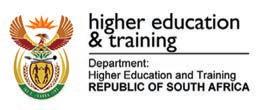

The college is collaborating with the Free State Provincial Government to build a long-lasting strategic partnership that will respond to the prevailing socioeconomic challenges that continue to plague South African communities, and particularly the youth. The partnership aims to foster development and innovation and will leverage the pool of available skills offered by the college.
For more information: 051 406 9300 marketing@motheotvet.edu.za www.motheotvet.edu.za
13 EMPOWERMENT
➔
Scan this QR code to go directly to the Motheo TVET College website.
Motheo TVET College is focused on providing students with the knowledge and skills needed to grow the economy
Motheo TV College has partnered with the Small Business Development and the Small Enterprise Development Agency (SEDA) to offer training and funding for community members and students interested in becoming business owners.
MOTHEO TVET COLLEGE ADVERTORIAL IMAGES: SUPPLIED
Professor Dipiloane Phutsisi

STILL UNDER-REPRESENTED AND UNDERPAID
From representation to gender pay gaps, women at executive level in South African corporate still face discrimination, writes TIISETSO TLELIMA
PwC’s recent Executive Director’s Report 2022, revealed that only seven of the top 100 JSE-listed companies (8 per cent up from 5 per cent last year) are led by women CEOs, and the representation of women in CFO positions increased from 17 to 19 per cent. However, the overall representation of women in executive positions in all JSE-listed companies is 15 per cent, a disappointing figure given that women’s empowerment has been at the top of the agenda in the public sphere for many years.
LACK OF REGULATION
“These stats tell us that companies don’t prioritise gender representation, and there is a lack of regulation in South Africa,” explains Leila Ebrahimi, editor of the report and PWC’s partner and co-lead of the executive reward team. “The only thing the JSE requires companies to have is a policy on gender representation, but there is no guidance on what that policy should say. Companies are left to their own devices to determine what’s appropriate. And, if they’re not getting any pressure from stakeholders, shareholders, employees and customers to fix this, there’s no reason to get it right.”
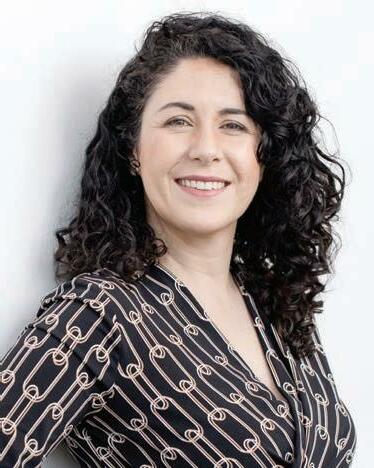
From an industry perspective, looking at 21 female appointments in executive roles in the JSE 100, only two industries dominate, with six coming from the basic materials industry and seven from the real estate industry. While Ebrahimi cautions against viewing this as a trend, and considering that the analysis is based on research from January 2020 to June 2022, she attributes the stats to external pressure within the mining industry. The Minerals Council’s Women in Mining initiative, launched in early 2020 to enhance the representation and development of women in the mining industry, has encouraged companies to create more opportunities for women.
CHALLENGES IN AND OUT THE WORKPLACE
In addition to the scarcity of women in boardrooms, women face many other challenges, including gender stereotyping, gender digital divide, mental and physical health, sexual harassment, and a masculine corporate culture, among others.
Advaita Naidoo, MD at Jack Hammer Global, says some challenges, such as sexual harassment in the workplace, have received significant global attention and are being addressed through robust disciplinary
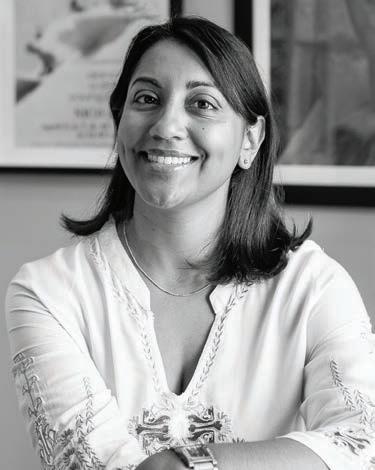
procedures within companies. “However, other problems, such as subconscious bias and limited advancement opportunities, are more difficult to address because they are pervasive, and solving them requires dedicated focus at a systemic level from business leaders,” explains Naidoo.

Esethu Mancotywa, the BMF’s acting president, states that because there is no critical mass of women in executive positions, subconscious biases still find their way into boardrooms and the decisions companies make. “For example, you’re the only woman in the boardroom and they want to have an exco meeting at 10pm, forgetting that women have to deal with children who have homework and need their supervision,” says Mancotywa.
Women are still the primary caregivers and homemakers in society, meaning that some often have to choose between a career and starting a family. Sometimes women with families and children find it difficult to manage the extra pressure that comes with being in an executive position and end up leaving their jobs. “It’s a symptom of how slowly corporate culture is evolving to make the environment more conducive for women so that they don’t have to make those choices, which men never have to,” adds Mancotywa.
GENDER EMPOWERMENT EMPOWERMENT 15
Advaita Naidoo
Leila Ebrahimi
Esethu Mancotywa
Mariam Cassim, Group CEO of Vodacom Financial and Diogital Services, agrees, adding that women’s responsibilities in the home outweigh those of their male counterparts, meaning women in corporates have less time for the demands at home. She says organisations must make a deliberate effort to ensure that the environment is conducive enough to retain talented women in executive positions and come up with out-of-the-box solutions.
“A simple example could be organisations partnering with home industries that can provide home-cooked meals so that preparing dinner for their families isn’t on women’s minds the whole day,” says Cassim. This way, companies are also empowering women differently, and supporting up-and-coming home industry businesses.
prove that it is happening to them, and it’s often too much for them to follow through with it,” she says. Some forms of sexism are also subtle, such as women’s authority being undermined, and being interrupted when they speak in board meetings. Macontywa encourages women to point this out when it happens, and if the problem persists, company processes should deal with it.
EXECUTIVES GENDER PAY GAP
Just like the poor representation of women at executive level, the gender pay gap persists. PwC’s Leila Ebrahimi says the gender pay gap in executive roles is generally 30 per cent across the globe.

SOLUTIONS AND SUGGESTIONS
On a systematic level, Macontywa believes that South Africa needs to emulate Nordic countries that have progressive gender policies to ensure women are supported in the workplace, for example, an equal number of months for maternity leave for both men and women.
Conversely, Mahanyele-Dabengwa thinks the private sector can do more to ensure that young women place greater focus on STEM (science, technology, engineering and mathematics) subjects to be better able to take advantage of opportunities. “There also needs to be early identification of potential within organisations so that women are supported on their path to leadership,” she says.
IMPOSTER SYNDROME
Women in leadership positions also experience feelings of self-doubt and inadequacy. A 2020 KPMG Leadership Summit Report found that 75 per cent of women in executive roles across industries have experienced imposter syndrome in their careers. “It’s very prevalent because women go through many different things and have so many levels of responsibilities, particularly when it comes to family, which can make it difficult to continuously engage on the same level as men in corporates,” explains Naspers CEO Phuthi Mahanyele-Dabengwa.
According to Naidoo, a major contributing factor to imposter syndrome is gender stereotyping and the entrenched cultural assumption that men are more intelligent and competent to perform leadership roles.
While overt sexism in corporates has decreased slightly, owing to pushback from women globally, Macontywa thinks that the policies and processes in place to protect women from sexual harassment need to be strengthened. “The onus is usually on the woman who has been sexually harassed to

The Executive Director’s Report 2022 shows that the gender pay gap for large-cap companies in South Africa is 32 per cent, an increase from last year’s 28 per cent. Medium-cap companies had 16 per cent, an improvement on last year’s 46 per cent and small-cap companies increased from 27 to 34 per cent. “It’s what we expected, but interestingly there’s a deviance in the medium-cap companies, which has shown a lower gap,” she explains.
BMF acting president Esethu Mancotywa explains that one of the reasons that there is a gender pay gap is because women don’t ask for what they’re worth, while men ask for double.
“I don’t want to put the onus on the victim, but I think we also need to be confident and name our price,” she says.
Mancotywa also blames companies that often short-change women and wishes that the practice of asking for previous payslips be abolished as it perpetuates bad pay. “Sometimes you will find that the role is paying R1-million,
but the employer sees that you used to earn R600 000, so they offer you R800 000 to save money,” says Mancotywa. “I think it’s unethical, and corporates need to incorporate principles of Ubuntu in their leadership.” There’s also a subtle form of discrimination where a role has a pay band, and black women tend to fall on the lower end of the band while everyone else is on the higher end or sometimes above it.
However, Ebrahimi thinks the gender pay gap is not always discriminatory. Sometimes women are paid less because the man they are replacing in the executive role may have been in the job for a longer time and the pay went up due to cost of living, negotiated increases and performance increases. Ebrahimi states that representation plays a key role in achieving gender parity. “We have a representation problem, which means male executives are likely to have been around for longer and thus paid more.”
Vodacom Financial CEO Mariam Cassim says women should have a zero-tolerance approach to the gender pay gap and stand up against companies that don’t have policies to address unfair pay for women.
GENDER EMPOWERMENT IMAGES: SUPPLIED EMPOWERMENT 16
Phuthi Mahanyele-Dabengwa
Mariam Cassim
“Women go through many different things and have so many levels of responsibilities, particularly when it comes to family, which can make it difficult to continuously engage on the same level as men in corporates.”
– Phuthi Mahanyele-Dabengwa
SUPPORTING ECONOMIC EMPOWERMENT, TRANSFORMATION AND SKILLS DEVELOPMENT
At MiX TELEMATICS, we believe we have an active role to play in creating and shaping the future of South Africa. This ethos encapsulates overarching elements such as good governance, environmental effi ciency, and social impact

Transformation, tangible growth, empowerment, inclusivity, and sustainability in the short and long term are key considerations for initiatives that MiX Telematics implements. The company’s involvement in various initiatives is making a difference in addressing some of the country’s challenges, including poverty, unemployment and inequality.
BUILDING SKILLS
In terms of skills development, the company’s focus is directed both internally and externally. MiX Telematics invests in the development of its employees to improve their skills while supporting their career development needs through further studies. This includes enrolling them in various programmes, courses and seminars, including formal qualification studies. Its leadership capacity is enhanced through a management development programme aimed at senior and middle management, which incorporates coaching and personal support.
In addition, the company offers learnerships for unemployed youth where learners with Grade 12 and other relevant qualifications gain valuable work experience in the core operations of the business. MiX Telematics’s flagship Autotronics learnership has resulted in the employment of most of these learners in the company and its channel partner network.
HELPING YOUNG ENTREPRENEURS
MiX Telematics launched the Ithuba Excelerator Programme in 2022, an enterprise development project to assist young entrepreneurs to establish their own fitment centre businesses. The word ‘Excelerator’ blends key concepts such as excellence and accelerator.
“We firmly believe that entrepreneurs and more specifically those in small, medium and micro enterprises can play a major role in the economic recovery and growth of our country because entrepreneurs often display innovation beyond our imagination and contribute to job creation,” said MiX Telematics Africa MD and executive vice president Gert Pretorius, at the programme’s inception.
The first group of entrepreneurs has been trained, coached and set up in their businesses. They have all become fully fledged partners or suppliers to the business. One of the beneficiaries, Tintswalo Khosa, a technically qualified female owner of Tek Fitment Centre says: “Now I can present my business, prepare a business plan, and understand compliance, among other things. The programme has allowed me to grow and learn various aspects
of owning and running a business, in addition to broadening my way of thinking. I believe this will help my business to grow.”
SUPPORTING AND UPLIFTING COMMUNITIES
In terms of socioeconomic development initiatives, the golden thread is assisting organisations that contribute towards alleviating the country’s challenges and support a holistic view of transformation. MiX Telematics supports initiatives such as Clover Mama Afrika that empowers women by teaching them skills to generate an income. This helps create jobs in the local communities.
Social upliftment services implement community projects aimed at imparting skills and knowledge that are both practical and underpinned by spiritual growth. This has enabled the company to make a difference in the surrounding communities where it operates.
MiX Telematics supports the Partners for Possibility Leadership Development Programme. This programme, the flagship of the education and leadership non-profit organisation Citizen Leader Lab, aims to develop the leadership capacity of school principals in under-resourced and, consequently, often underperforming South African schools while providing practical support to improve the functioning of those schools.
As part of this programme, company executives such as Kgomotso Bokaba, who heads up transformation and human resources, are directly involved with the coaching and mentoring of a local school principal. As a result of the Citizen Leader Lab Programmme, educators were able to improve the literacy levels of Grade 3 learners in the school with the assistance of the Missio Dei Foundation, which believes that once children fall behind in education, it has a snowball effect that hampers them in securing employment. This subsequently causes numerous social problems.
“We believe that our involvement in these initiatives will make an impact on the future of this generation and, as a company, we are proud to play a role in the transformation and growth of the country,” concludes Pretorius.
➔ Scan this QR code to go directly to the MiX Telelmatics website.
For more information: eetsa@mixtelematics.com www.mixtelematics.com

17 EMPOWERMENT
MIX TELEMATICS ADVERTORIAL
AND MORE SPECIFICALLY THOSE IN SMALL, MEDIUM
MICRO ENTERPRISES
“ENTREPRENEURS
AND
CAN PLAY A MAJOR ROLE IN THE ECONOMIC RECOVERY AND GROWTH OF OUR COUNTRY.” – GERT PRETORIUS
From left: Professor Elaine Vlok (founder of the Clover Mama Afrika project), Phomolo Raisa (a Clover Mama Africa mama), and Kgomotso Bokaba (HR and Transformation Executive at MiX Telematics).
EMBRACING DIVERSITY AND INCLUSION FOR ECONOMIC GROWTH
Some companies are placing inclusion and diversity at the top of their agenda to help move the needle towards better economic prospects as South Africa grapples with a high unemployment rate and sluggish growth, writes DINEO FAKU
Unemployment is still elevated even as it moderated to 33.9 per cent in the second quarter of 2022 from 34.5 per cent in the first quarter of 2022, with the youth bearing the brunt of the country’s jobless burden. According to Stats SA’s Quarterly Labour Force Survey, youth unemployment in South Africa stood at 46.5 per cent in the second quarter of 2022.
ENABLING PEOPLE, IMPROVING LIVES, MAKING A DIFFERENCE
Diana Johnson, head of human resources and inclusion at British American Tobacco East and Southern Africa, says diversity and inclusion are critical to improving lives and livelihoods.
“We believe South Africa can achieve an adaptable, sustainable and growing economy if it harnesses the strengths of all its people and communities and uses diversity as a catalyst to solve social challenges and enhance economic performance,” she says.
Johnson says British American Tobacco SA (BATSA) is committed to transforming the
South African tobacco sector across the full supply chain. She says its Broad-Based Black Economic Empowerment (B-BBEE) efforts include initiatives focused on employment equity, skills development, preferential procurement, and enterprise and supplier development.
AECI, a JSE-listed chemicals company, says it strives to make a meaningful difference wherever it operates, and in South Africa, the transformation agenda is a priority.
“As a South African-based group of companies, we are committed to driving inclusion in the workplace and in the communities that host our operations. This is a business imperative that is embedded in our values, and our vision to create ‘One AECI, for a better world’.”
AECI says its broad-based ownership structures that empower people in the community and workplace, coupled with progress towards female representation, reflect its commitment to making a meaningful difference in society.
The company says it is aspiring to improve female representation as part of its sustainability strategy, which would help drive its business growth strategy.
“Well-established leadership and management programmes are in place to support this ambition,” AECI explains, adding that improving the representation of people with disabilities in the organisation is another key priority. “Appropriate programmes with accompanying targets are being rolled out.”
AECI explains that it is also supporting the development of young people by providing access to technical, operational and artisanal skills, as well as nurturing their entrepreneurial ability.
Fatima Newman, chief risk officer at EOH, the JSE-listed technology services group, says an inclusive world is an enabled world.

“We recognise and embrace the benefits of a diverse organisation and believe that diversity is an essential component for sustaining a competitive advantage. Race, age and gender diversity, underpinned by the relevant skills as well as business, geographic and academic experience, and background, enhance the composition of a truly diverse EOH,” she says.
Newman says EOH has aligned its learning and development programmes to prioritise opportunities for women, as well as people with disabilities and the youth. “A total of R32.7-million was spent in this regard for the 2022 financial year, which included an investment of R15.2-million towards the learning and development of black women,” she says.
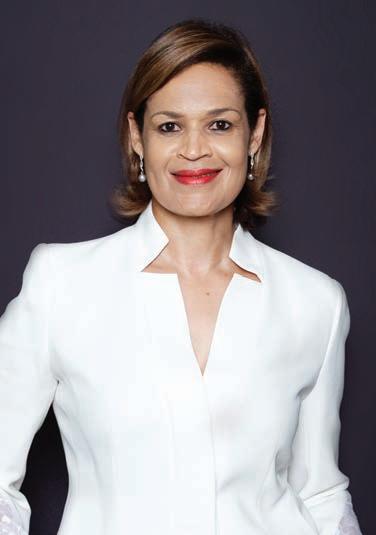
EMPOWERMENT 18
Diana Johnson
“We recognise and embrace the benefits of a diverse organisation and believe that diversity is an essential component for sustaining a competitive advantage.” – Fatima Newman
Fatima Newman
REASONS TO EMBRACE EMPOWERMENT
Cas Coovadia, Business Unity SA CEO, says there are political, moral and business reasons to embrace empowerment.

“The biggest motivation, in my view, is the business one. I am of that view because the market for employment is primarily in those that were previously excluded, and more diversifi ed businesses are able to be more competitive and globally oriented”.
Coovadia says employment, training and skilling at lower and middle strata of businesses have made very good progress, but much work needs to be done at the executive management level.
“The primary problem here is a lack of appropriate supply. This is related to our education system and insufficient interaction between higher education and business to ensure these institutions focus on degrees and other qualifications that make them employable in executive positions,” he explains.

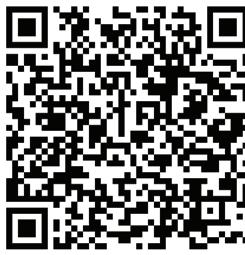
FIVE ELEMENTS OF THE B-BBEE CODE OF GOOD PRACTICE
Transformation legislation, including the B-BBEE Code of Good Practice, is the government’s leading tool to level the playing fi eld and transform the economy. It sets targets in fi ve elements: ownership, management control – which includes employment equity, skills development, enterprise development and socioeconomic development. A company attains a transformation level according to how it scores on these elements. But, progress remains slow in achieving the targets.
According to Deloitte’s research on diversity and inclusion in South Africa published in 2020, management control, which measured workplace diversity, was the worst performing of the fi ve elements in the B-BBEE scorecard.
“There are two probable explanations for the poor performance: either companies are struggling with workplace diversity, or they are choosing to focus on other elements despite the relatively high weight of the management control element in the scorecard,” the report states.
TICKING BOXES RATHER THAN TRANSFORMING
Kganki Matabane, CEO of the Black Business Council and a member of President Cyril Ramaphosa’s Broad-Based Black Economic Empowerment Advisory Council, says the pace of transformation is slow because companies are merely ticking the boxes.
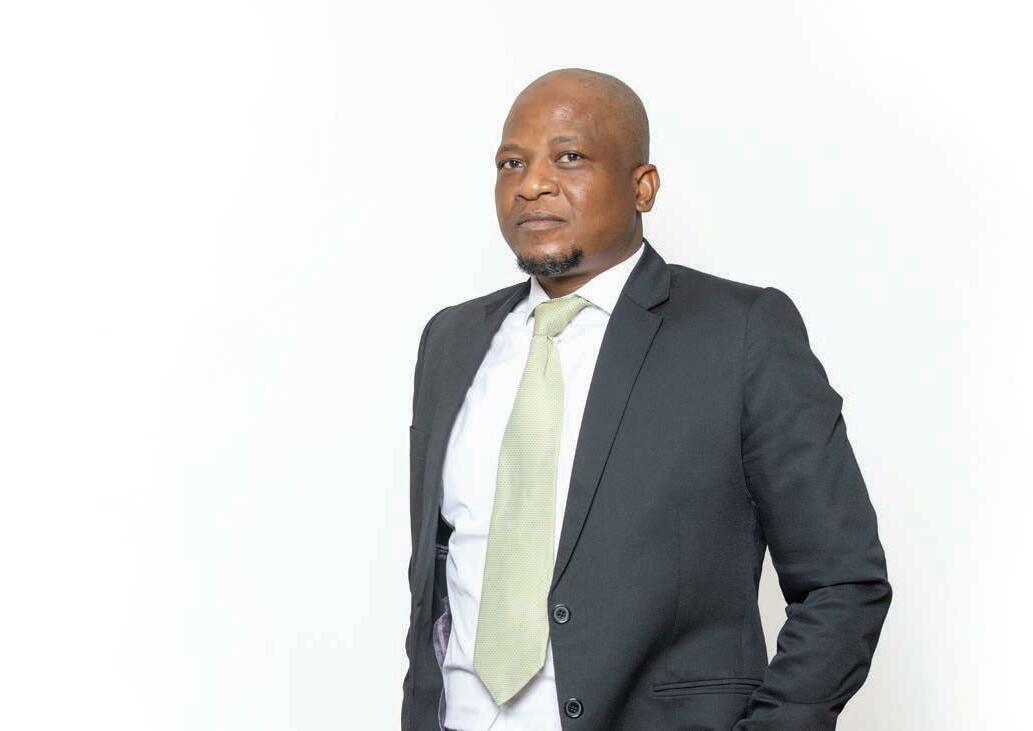
“For example, they say if we appoint a black woman, this is how many points we will get. That is not transformation, but ticking boxes, and it is not sustainable. When you transform, even the work environment must also change.”
He was referring to the Commission for Employment Equity’s latest annual report released in June 2022, which found that a quarter of private sector employers still have training, development and succession planning barriers that hamper transformation at top management levels – 24 years after the enactment of the Employment Equity Act and the Skills Development Act.
“If you look at the CEOs of JSE-listed companies, they are white males. The difference between now and 1994 is very minimal, white people were in charge pre-1994, and they are in charge even now. They are ticking boxes instead of wanting to see a transformed company and a transformed country,” he says.
Matabane claims that the focus is more on scoring BEE points and that transformation is secondary in many companies.
“We always tell them the problem with what they are trying to do is creating a problem for the country because you cannot have a situation in any country where you continue to exclude the majority, and you hope you can sustain democracy. You cannot let people become gatvol as happened in July last year when people got gatvol.”
However, Coovadia says that if you have charters and targets, it sometimes becomes a tick-box exercise, although there are indications that more businesses are taking a more strategic approach. “There is still a lack of trust and suspicion from some in government, particularly those responsible for implementing and tracking empowerment. What is needed is frank engagement between business and government on empowerment, including what a transformed economy looks like and how we approach this in an environment where there is no growth.”
DIVERSITY AND INCLUSION EMPOWERMENT 19
REPORT ON DIVERSITY AND INCLUSION COMMISSION FOR EMPLOYMENT EQUITY ANNUAL REPORT 2022
Cas Coovadia
2020
“What is needed is frank engagement between business and government on empowerment, including what a transformed economy looks like.” – Cas Coovadia
“The pace of transformation is slow because companies are merely ticking the boxes.” – Kganki Matabane
IMAGES: SUPPLIED
Kganki Matabane
Accountability – it’s a word often thrown around. We want to hold management accountable, government accountable, students accountable and NGOs accountable. But what about holding ourselves accountable?
Accounting is, at its core, a mechanism of accountability. History has numerous examples of where a lack of accountability led to economic, financial and even political crises. But why, as Jacob Soll argues in his book The Reckoning, has humanity been so hard-pressed to learn this lesson despite many opportunities? Failing to truly incorporate companies’ environmental impact into their financial statements seems to be history repeating itself.
Accountants have enormous power –particularly when it comes to promoting positive change.
The CEO of the South African Institute of Chartered Accountants (SAICA) Freeman Nomvalo points out that the following example demonstrates the power of accountants as the “storytellers” of business to promote positive change:
“Let’s assume there are two paper companies that are alike in every way except for one thing: their environmental impact and conscience. Company A cuts down trees and moves on to the next area with no consideration of the environmental destruction it causes. Its business model is highly profitable as all capital is spent solely on income-producing activities. Company B, in contrast, develops a sustainable rotational model that involves replanting and caring for trees after cutting. This requires
additional expense, but reduces the total environmental area used for its operations.
“If accountants tell Company A and B’s story using financial metrics only, then clearly A is the “better” company as it is more profitable. But, if accountants develop the tools to bring on the balance sheet the environmental impact of each company, Company B is viewed more favourably. By telling a more complete story, investors are better able to determine the risk profile of each organisation. Customers are more likely to do business with Company B, and the company will also find it easier to attract and retain the most talented staff.”
Armed with more holistic knowledge of companies’ total value creation, society shifts what it will accept from organisations.
TELLING BETTER STORIES
So the question is, why are accountants not already telling better stories?
One reason is that good storytellers must be trained: they are not just born with the ability to explain how organisations create value. Interconnected with training is the required skill set. Universities do an excellent job at preparing the next generation of accountants to construct income statements and balance sheets with less emphasis on how social, environmental and economic factors should be incorporated into business models and the value creation story. Put simply, you will find hundreds of books on, for example, doubleentry bookkeeping, the definition of an asset, consolidation accounting techniques, and the determination of fair value.
In contrast, there are no generally accepted standards for implementing what Professor Mervyn King describes as “integrated thinking”. For example, we cannot answer questions regarding environmental impact such as: What to recognise in the “balance sheet”, at what date and at what amount.
Initiatives such as the United Nations’ Sustainable Development Goals, Finbiz2030 (a project of One Young World and Chartered Accountants Worldwide), and the International Integrated Reporting Council (now known as the Value Reporting Foundation after a merger with the Sustainability Accounting Standards Board) have done extremely well to provide the foundation for more holistic corporate reporting and accountability. But the journey is long and requires time and money to develop the tools to bring environmental assets, liabilities, income and expenses into corporate reporting.
There was a time when people couldn’t imagine bringing share options (IFRS 2), certain intangible assets (IAS 38) and right-of-use assets (IFRS 16) into the financials. They did not have the tools to measure or identify some assets with the result that they remained unaccounted for.
But now we do.
Similarly, with perseverance, we can develop the technology to identify, measure and recognise environmental impacts to improve corporate reporting, assurance and accountability.
THE POWER OF ACCOUNTING TO RAISE AWARENESS
Earlier this year, Wits’ Accounting Professor Kurt “Indiana Jones” Sartorius, his son Professor Benn Sartorius, a Brazilian local, and I paddled 1 100kms down the Amazon’s Madeira River because we believe in the power of accounting. We wanted to raise awareness and funding to fight climate

20 EMPOW E RM E NT ADVERTORIAL SAICA
We want accountants to see the value of integrating environmental risks and opportunities into their risk management frameworks.
Why “storytelling” matters to the planet. By
ACCOUNTANTS AND ACCOUNTABILITY
PROFESSOR WAYNE VAN ZIJL
change. Because we know change is slow, we hope our story of two accounting professors, one 73 years old and one a chartered accountant, will inspire other accountants to start having conversations within their organisations to lay the foundation for more holistic corporate reporting.
We want accountants to see the value of integrating environmental risks and opportunities into their risk management frameworks. We want society to start demanding more integration of financial and extra-financial performance so that they can make more informed decisions.
As part of this project, we started to raise donations to fund reforestation initiatives in the Amazon Rainforest. We did this to emphasise that climate change is a borderless fight. As the “world’s lungs,” we all benefit from the Amazon and cannot leave the burden of fighting deforestation only to Brazil. Donations will also be used to develop the tools that business needs (and wants) to be able to tell their value-creation story and be recognised for the good work they are already doing. The sooner we have the means to identify, measure
and recognise environmental performance and position, the better.
If you would like to donate to this cause, please visit the Wits Foundation’s donation page and select the Accountants Can Save the Planet option. The fund is administered by Wits’ Development and Fundraising Office and Section 18A tax certificates are available on request.
*Professor Wayne van Zijl is a chartered accountant and associate professor in the School of Accountancy at Wits University. He is predominately a qualitative researcher in
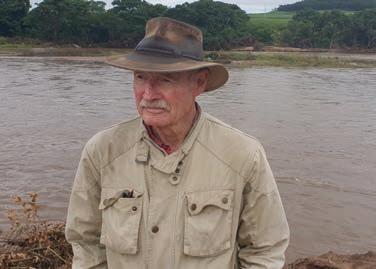
corporate reporting, with a focus on technical accounting. He is currently busy with his PhD, investigating the evolution of accounting, drawing on concepts of biological evolution and dynamic systems. He also teaches on Wits’ CA programme and honours and masters courses.
Donate to the Wits Accountants can save the planet fund here
Scan this QR code to go directly to the SAICA website.
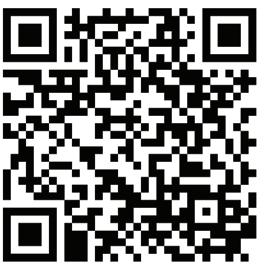


For more information: www.saica.org.za

21 EMPOWERMENT
➔
SAICA ADVERTORIAL
IMAGES: GUSTAVO FRAZAO
Wits accounting Professor Kurt Sartorius

THE IMPACT OF CORRUPTION ON SOUTH AFRICAN SOCIETY
If you want to draw attention to any crisis, cause or issue, it’s best to start with hard numbers. South Africa lost R1.5-trillion through corruption in just five years between 2014 and 2019, according to the Unite 4 Mzansi’s first case study titled State Capture 101
Deep diving further into the national morass of malfeasance, corruption has cost South African taxpayers at least R4.4-billion over the past few years on everything from bribery to tenders awarded without proper procedures being followed and overspending. This damming information is contained in a report by trade union Solidarity.
And there is no doubt that damaged and broken chickens are coming home to roost, as corruption has had a direct impact on infrastructure build and service delivery.
In the introduction to the Institute of Risk Management South Africa (IRMSA) 2022 Risk Report, Mike Brown, CEO of Nedbank Group Limited, said the only sustainable way to change is through better education outcomes coupled with sustained growth and supported by strong leadership that actively combats corruption.
Our report goes on further to say that South Africa risks becoming a failed state “due to a continued lack of inclusive socioeconomic growth, sustainability of energy supply and government capacity, as well as continued state capture and increasing unemployment”.
A failed state means a future “characterised by a direct threat to our democracy, capital flight, hyper-inflation, social unrest and currency collapse”. The more cynical will say we are already in that state of unsalvageable paralysis.
RISK RESPONSE AND CONSEQUENCE MANAGEMENT
Before I look at how to avoid a repeat of the past ten years, let me share some thoughts on my speciality, risk and its relationship to corruption.
Within the risk management world, there is a specific focus on fraud risk management, which covers the full gamut from risks associated with fiduciary fraud, theft and legal contraventions – this refers to legal and safety violations because of corner-cutting, which, in turn, increases the likelihood of accidents or illness – and the risks associated with the manipulation of information, which implies hiding or withholding important data.
While many organisations are amplifying this part of their risk management strategy, I feel that much more needs to be done.
In that respect, all companies must look more closely at the risk of corruption
and the related risk response strategies. This includes overhauling anti-bribery and anti-corruption policies, making sure that the right tone and approach to these issues comes from the very top echelons of leadership, and that due diligence on all third parties associated with a company is conducted. In addition, common sense must be used to watch out for fraud, bribery, and corruption red flags.
In South Africa, it seems that the biggest problem is dealing with effecting proper and serious consequence management on the part of those who continue to perpetuate corruption.
Cabinet has approved the National Anti-Corruption Strategy, and what remains now is accelerated execution. The strategy contains several pillars that include strengthening anti-corruption agencies, ethical leadership, professionalisation of the public service, strengthening the judiciary, and proactiveness in the fight against corruption.
IRMSA believes that many of our members are on the frontline and need our support. As part of IRMSA’s drive to impede corruption, a whistle-blowing hotline was set up by The Anti-intimidation and Ethical Practices Forum and the Special Investigating Unit, of which IRMSA is a forum member along with eight other members (IIASA, SAIPA, SAICA, Corruption Watch SA, The Ethics Institute, IRMSA, ACFESA and the IoDSA).
We know what needs to be done, now it is a case of stepping up and doing it. The scourge of corruption in South Africa is deep and cancerous and collectively we need much courage to effect efficient and meaningful cauterisation.
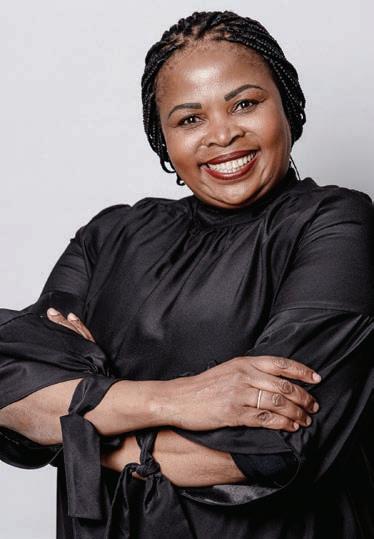
THOUGHT LEADERSHIP – CORRUPTION EMPOWERMENT 23 IMAGE: SUPPLIED
PAT SEMENYA , CEO of the Institute of Risk Management South Africa, shares that we need courage to effect efficient and meaningful change to counter the impact corruption has on our economy, leadership and people
“South Africa risks becoming a failed state due to a continued lack of inclusive socioeconomic growth, sustainability of energy supply and government capacity, as well as continued state capture and increasing unemployment.” – IRMSA 2022RiskReport
Pat Semenya
INTEGRATING ESG MAKES BUSINESS SENSE
There are still no compulsory environmental, social, and corporate governance (ESG) standards on a South African level that demand compliance. However, recent developments such as the Climate Change Bill and the adoption of South Africa’s Just Transition framework by the cabinet are all ESG related.
The future leaders in business and society will be the companies and entities that understand that ESG is about shared value and building thriving communities and economies. This is a view shared by PwC Africa’s ESG leader, Lullu Krugel, who says that by acknowledging that most environmental risks have socioeconomic implications, including unemployment, food insecurity and increasing health risks, it becomes clear that taking social impact into account is non-negotiable.
“Our view is that African companies should integrate ESG considerations into their corporate and investment initiatives and activities, and internalise ESG holistically to build trust and ensure long-term sustainability, agility and competitiveness,” says Krugel.
CEOS NEED TO STEP UP
PwC’s 25th Annual Global CEO Survey reports that although South African CEOs are “concerned” about the impact of physical and transitional risks associated with climate change on their business over the next 12 months, 77 per cent of the country’s CEOs acknowledge that their company has not made a carbon-neutral commitment.
Krugel adds: “According to the survey, local companies are more likely to have nonfinancial ESG-related outcomes included in their long-term strategy than their global
counterparts. Especially on topics relating to racial and gender representation.
“Including ESG metrics in executive pay packages is a tangible way to close the say-do gap,” says Krugel.
Commenting on any correlation between ESG investment and business growth, Krugel says an increasing body of evidence shows that stronger ESG performance is associated with better shareholder returns, suggesting that improving environmental performance could increase equity attractiveness. For example, a strong driver for ESG is the mining sector, with organisations such as the International Council on Mining and Metals committing the sector to responsible mining standards.
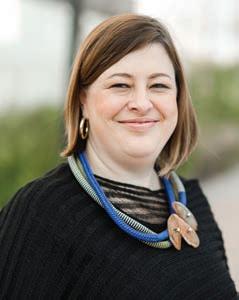


FOCUS ON MINING
Ralf Hennecke, managing director of Bulk Mining Explosives, says it is a common cause that climate change targets are placing a heavier load on mining output.
“This puts a demand focus squarely on the mining industry at a time that the sector is also expected to develop and apply stringent ESG principles,” says Hennecke.
“For example,” he says, “there’s an intense focus on the ESG compliance of mining supply chains, with organisations such as the European Union paving the way for member countries to source battery minerals only from responsible supply partners.
“End-customers in the battery minerals supply chain are choosing to work with responsible partners who rely on their host countries for transparent licensing, permitting and mineral extraction frameworks.”
Hennecke explains further: “Our mining customers are all working within complex operational and regulatory ecosystems,” he says. “They cannot meet their respective
THE FINANCIAL ASPECT
PwC Africa’s ESG leader Lullu Krugel says: “A strong driver for ESG is financial institutions and investors. Being able to obtain affordable, maybe even preferential loans or, at some stage, likely loans at all presents strong encouragement to take ESG seriously since sustainability-linked loan criteria will be the new normal.”
sustainability targets alone and must rely heavily on their service providers to achieve these.”
Mines and their suppliers must demonstrate not just compliance, but also best international practice, notes Hennecke.
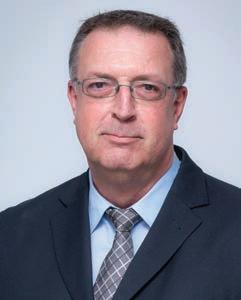
“Not all countries with battery mineral potential have the structures in place yet to facilitate ESG compliance and transparency,” adds Hennecke. “This complicates the process further, and often the primary responsibility for navigating this terrain falls on the mining company and its service providers.”
This requires close collaboration within the mining supply chain, where service partners align their ESG objectives with mining customers.
“Once again, the mining sector, including all its stakeholders, will need a broad view of its supply chain to identify and effect the ESG impacts as the new energy outlook demands more of us,” concludes Hennecke.
ESG INVESTMENT IMAGES: SUPPLIED EMPOWERMENT 24
Environmental, social, and corporate governance should be about building thriving communities and economies, writes ITUMELENG MOGAKI
“Including ESG metrics in executive pay packages is a tangible way to close the say-do gap.”
– Lullu Krugel
Lullu Krugel
Ralf Hennecke
THE JUST TRANSITION FRAMEWORK
GLOBAL CEO SURVEY


ADVANCING THE CASE FOR WOMEN
Women have always been taught to compete against one another. It seems ingrained in our minds that by helping each other, we appear weak and unprofessional. As a result, we constantly size one another up and compete with each other. When was the last time you saw a woman compliment another without being complimented fi rst? Or how often do you see a successful woman and ask yourself what she did to get there? You may think she had an unfair advantage or used her looks to get ahead.
So, while it may seem that women don’t support each other, I have a different tale. It’s a tale of a woman who started as an instrument mechanic and almost 20 years later is running one of the leading laboratory solutions companies in South Africa. How did I get here? Women.


women supporting women
Contrary to popular belief, I have witnessed women supporting and encouraging each other; women coming together to break the glass ceiling and protecting each other from being cut by the broken glass. I cannot think of myself and the Bashumi Instruments and Control Services journey without thinking about all the women who carried me through it all.
From the company’s inception, it has always been women who have provided support. From my close friend who mentored me to other women backing me fi nancially and introducing me to potential clients to gain access to the market. To this day, most of our clients are acquired through women recommending us. Through women opening the door and leaving it open for the next women to enter. I’ve always seen women as enablers and nothing less.
I know that my story is not unique, but because these stories are not shared enough, we automatically assume that women don’t support each other.
Here are three considerations about women supporting women.
1. Do not de ne yourself by how you differ from another woman.
Everyone’s life is different, but we all have something in common: being a woman. If everyone were exactly the same, things would be pretty boring – and no one likes boring. The fact that you’re different from other people doesn’t make your experiences any less valid or worthy of attention and respect.
2. Focus on talents and strengths, not gender. It’s time to stop focusing on gender and start focusing on what you have in common with other women. Instead of trying to prove that you are different from men, focus on the skills and talents that make you a good leader. Get rid of the unconscious bias of men being able to do certain tasks better. Instead, look at yourself and other women in certain positions and say, “she deserves to be there because she knows what she’s doing”.
Women can move forward when they fully tap into their strengths and continue to empower other women through mentorship programmes or by sharing knowledge through their own experiences (such as writing this piece).
3. Use your leadership position to advance women.
It is lonely at the top. But it doesn’t have to be. As a woman, you can play your role by helping other women get into leadership roles too. Use your position to advance women and create more space at the table. Far too many decisions have been made on behalf of women by men. It’s time to change the narrative; I know it’s possible because I have experienced it.
If you’re a woman who wants to be more supportive of other women, then the best thing you can do is ask yourself if there is anything you can do to help them. If there isn’t, then it’s time for a change in your life.
I can fully attest that women do raise each other’s crowns and lift as they rise. And since women raised my crown, I am committed to lifting others. I am because women are.
this QR code to go directly to the BICS website.
For more information: lomosenoamadi@bics-sa.co.za www.bics-sa.co.za

27 EMPOWERMENT
➔ Scan
Do women support each other? LOMO SENOAMADI , founder and managing director of Bashumi Instruments and Control Services, weighs in on the debate
WOMEN CAN MOVE FORWARD WHEN THEY FULLY TAP INTO THEIR STRENGTHS AND CONTINUE TO EMPOWER OTHER WOMEN THROUGH MENTORSHIP PROGRAMMES OR BY SHARING KNOWLEDGE. BASHUMI INSTRUMENTS AND CONTROL SERVICES ADVERTORIAL
IMAGES: SUPPLIED
Lomo Senoamadi
HELPING BUSINESSES ACHIEVE THEIR GROWTH POTENTIAL


































Kleoss Capital is a South African private equity fi rm that seeks to invest in South African businesses with exposure to the rest of the African continent, writes the CEO and managing partner, HALE MATSIPA






Kleoss Capital is a 100 per cent black-owned and -managed investment manager with a level 1 Broad-based Black Economic Empowerment (B-BBEE) accreditation. Our primary objective is to generate returns for our investors. We seek to achieve this by targeting companies who either show high growth potential or are strong market leaders in their sectors and require our capital, as well as strategic value-add, to fulfil their growth potential.
Focus on Impact and transformation
Our Fund II imperative also includes a very strong job creation component, particularly against the backdrop of the mute macroeconomic environment. This imperative has been made possible through some of our investors, such as 27four Investment Managers, that provide capital from National Treasury in the interest of creating jobs in every investment we make as a team.
TEAMWORK EQUALS SUCCESS

“At Kleoss Capital we strive to draw the best from our people. This means that we strive to create a culture of highly driven and motivated individuals who are constantly challenged by their work.”
“A private equity team is a team sport. At Kleoss Capital, we believe each member of the team is critical and without the full team moving in sync, we will not succeed.” — Hale Matsipa and Zain Laher, co-founders
Our Fund II imperative also includes a very strong job creation component, particularly against the backdrop of the mute macroeconomic environment.
in the ICT sector. This business is in expansion mode, and we believe it is well positioned to benefi t as the world continues to move towards embracing more technology. Notwithstanding the job creation imperative, Kleoss Capital is also mandated to ensure that its portfolio of companies achieves an improved Black Economic Empowerment (BEE) rating scorecard through the investment horizon. We work hard with management companies to ensure that during due diligence, we address mechanisms to implement an overall improved BEE rating scorecard including other environmental, social and governance requirements. This mandate, outside of returns, allows the private equity industry to be transformational within the South African economy and to play its part in utilising pension funds and state funds to drive meaningful change.
resilient
opportunities.
This impact approach has focused the team on critical sectors in Fund II, which are resilient job creators notwithstanding the mute macroeconomic environment. Since reaching the fi rst close of Fund II with R600-million in September 2021, the team has invested in the affordable education sector through Thrive.ed wherein the impact of such an investment is obvious, notwithstanding the training and development of teachers and employment opportunities. The team is currently investing in DCC Corporation, a business
➔ Scan this QR code to go directly to the Kleoss Capital website.
For more information: +2711 6661660 info@kleosscapital.com www.kleosscapital.com

ADVERTORIAL KLEOSS CAPITAL
Zain Laher
Hale
EMPOWERMENT IMAGES: SUPPLIED
Matsipa

AN ELITE BODY OF PROFESSIONALS
By KGOMOTSO SETHUSHA
Aregistered government auditor (RGA), is a designation of the Southern African Institute of Government Auditors (SAIGA). It is considered the highest professional designation within public sector fi nance and auditing. It is a professional qualifi cation offered at a postgraduate level at NQF level 8 and accredited by the South African Qualifi cations Authority.
“It represents experts with a broad knowledge of public sector regulatory frameworks, accrual and modified cash basis accounting frameworks, compliance auditing, finance audit, audit of performance objectives,


A HIGHLY QUALIFIED SPECIALIST

A specialist in government audit diagnostic assessment, registered government auditor (RGA) and deputy president of the Southern African Institute of Government Auditors (SAIGA), Nonhlanhla Madungandaba plays a valuable role within the of ce of the Auditor-General (AG).
and performance information audit,” says registered RGA Nonhlanhla Madungandaba, currently one of the managers of the Material Irregularity Unit at the Auditor-General South Africa (AGSA) and the deputy chairperson of the SAIGA regional committee in Gauteng.
As audit experts, the RGAs interrogate money in all three spheres of government earmarked for service delivery and all projects that underpins economic activities.
“As an institute, SAIGA and its members are essential in providing solutions for capacity building across all three spheres of government,” says Madungandaba. “SAIGA’s Public Sector Accountancy and Audit Academy (PSAAA), provides courses relating to public sector fi nance and auditing professionals to ensure public sector accountability in the prudent management of public fi nancial resources.
“One of the key outreach programmes SAIGA regions want to embark on for 2023 is to support the African Union Agenda 2063: “ The Africa that we want”. We want to ensure that the vision is realised by ensuring that we produce future RGAs with the


















CURRICULUM OF RGA TRAINING
The RGA professional training programme has been structured in a manner that develops a professional with accounting (preparing nancial statements) and auditing (providing assurance). The name “registered government auditor” may be perceived as a professional who is an auditor, however, an RGA is rigorously assessed in ethics, public sector regulatory frameworks, accounting and auditing. Amongst others, the RGA curriculum covers principles and ethics of auditing, public nancial management, nancial accounting and reporting, modi ed cash framework, organisational strategy and management, governance, risk management, budgetary management, tax and raising revenue, quality management, fraud & forensic audit, ICT audit and performance auditing. The examinations of RGA comprise three papers – Paper 1 - ethics & regulatory frameworks, Paper 2 –accounting and Paper 3 – auditing.




REQUIREMENTS TO BE AN RGA
development unit as part of the team the of ce of the Auditor-General,



She is quali ed in all legislation affecting government and has worked in an audit research and development unit as part of the team that provided support to auditors on issues arising during audit cycles. Madungandaba was part of the task team that established the Material Irregularity Unit at the of ce of the Auditor-General, which is responsible for ensuring the adequate implementation of the new powers of the AuditorGeneral of South Africa in terms of the amendments to the Public Audit Act three years ago.







She holds a Bachelor of Accounting Sciences (BCompt) degree and a post-graduate diploma in forensic auditing. She has 14 years of nancial management, accounting, and auditing experience in both the private and public sectors.
required and relevant technical skills that
will assist the current and accountability in African countries,”
state of governance and accountability in African countries,” concludes Madungandaba.
The prospective RGA must rst obtain an undergraduate NQF level 7 commercial quali cation or equivalent quali cation from a recognised tertiary institution. Thereafter, the candidate must enrol for the public sector auditor NQF level 8 quali cation, popularly known as GASP (Government Auditing Specialism Programme) offered by the SAIGA training academy. People who hold other equivalent NQF level 8 quali cations may apply for exemption or Recognition of Prior Learning (RPL). Prior to qualifying as an RGA, a candidate must undergo a 3-year practical work experience or possess a minimum of three years of experience in external audit or nancial management in the public sector. Public service professionals who have ve-year work experience in nancial management or external auditing and possess a minimum NQF level 7 quali cation and other professionals keen on contributing to or wanting to start a public sector career may contact SAIGA academy, PSAAA by emailing: Sithembile Sibanyoni at bdo@psaaa.co.za or by calling 010 109 6243.

Scan this QR code to go directly to the SAIGA website.
For more information on SAIGA membership: 012 004 0741 membership@saiga.co.za www.saiga.co.za

30 EMPOWERMENT
ADVERTORIAL SAIGA
➔
The Southern African Institute of Government Auditors is the professional body representing a unique brand of professionals – registered government auditors – in the public sector and academia
Nonhlanhla Madungandaba
IMAGES: SUPPLIED

MAKING THE SUSTAINABLE DEVELOPMENT GOALS REAL
Sustainable Development Goal 8 talks about promoting sustainable, inclusive and sustainable economic growth, as well as productive employment and decent work for all. ITUMELENG MOGAKI speaks to two organisations that have adopted their own SDG initiatives
Back in 2019, Sanlam Investment started exploring the impact made by some of its private debt funds and amplified them by aligning with the United Nations’ Sustainable Development Goals (SDGs) and becoming more involved in ensuring the underlying portfolio companies are impactful.
In June 2020, it launched its impact funds suite known as the Investors’ Legacy Range with a specific focus on SDG 8 – decent work and economic growth.
The three impact funds – the Investors’ Legacy SME Debt, the Investors’ Legacy Corporate Debt and Investors’ Legacy Private Equity – allowed the business to measure and report on the impact being made through its investments.
Teboho Makhabane, ESG and impact implementation specialist at Sanlam Investments, says: “There is a growing desire within the investment ecosystem for responsible and conscious capital and, as an industry, we should evolve to cater to that need.”


“The Investors’ Legacy Range impact funds were launched during the height of the COVID-19 pandemic and specifically focused on job creation and preservation. Poverty, inequality, decent work, and economic growth are SDGs that guide the three funds in ensuring that South Africans recover from the severe economic impact of COVID-19.”
PERFECTING IMPACT INVESTMENT OFFERS
Makhabane says Sanlam Investments continues to grow and perfect its impact investment offerings according to rising societal needs.
“While continually pursuing job creation and job preservation, the quality of jobs created is equally important. Sanlam Investments is
participating in the SDG challenge, which consists of South African companies working together with students from different universities to develop solutions to business problems in line with the SDGs.
“Our focus is on SDG 8 – decent work and economic growth. We are collaborating with Stellenbosch University students to build a methodology/framework that will help measure job quality, an important metric to assist with benchmarking the impact of our Investors’ Legacy Range.
“The job quality measure will assess whether employers are effectively remunerating and creating growth opportunities for their employees,” says Makhabane.
DRIVING SOCIETAL IMPACT
Talking about Sanlam Investments’ personal SDG target, Makhabane says they target impact objectives that address climate issues, high unemployment and the inequality gap in SA.
“We offer investment products with impact mandates that target SDGs 1–13. By aligning with these specific SDG targets, Sanlam Investments sees an opportunity to drive true societal impact in SA,” says Makhabane.
Motivated by its participation in developing the Johannesburg Climate Action Plan (CAP) report, displaying its broader climate-change capabilities, Zutari recently established its sustainable development unit, which highlights the importance of communication and stakeholder engagement in developing sustainable solutions for underlying socioeconomic problems facing many local communities.
Thapelo Letete, technical director of climate change and sustainability at Zutari, says before the Paris Agreement, Johannesburg city was already at the forefront of low-carbon development and resilience planning.
“Its long-term vision, known as the 2040 Growth and Development Strategy, makes provision for a resilient, liveable, sustainable
FAST FACT
The Climate Action Tracker is an independent scientific analysis that tracks government climate action and measures it against the globally agreed Paris Agreement aim of holding warming well below 2°C and pursuing efforts to limit warming to 1.5°C.
urban environment, compatible with a healthy natural environment underpinned by infrastructure supportive of a low-carbon economy,” says Letete.

Zutari’s combined urban planning, engineering and climate change expertise supports a unique alliance of organisations and independent specialists comprising the Future Cities SA initiative, in conjunction with PwC (United Kingdom and South Africa), among others.
The initiative aims to support Johannesburg, Durban and Cape Town with the urgent challenges of sustainable development.
“The challenge posed by climate change is that it cuts across many different sectors and departments, which is a challenge for many cities and institutions that are still very silo-based. However, we all have to work together to achieve a shared vision, and the CAP report is certainly an extraordinarily successful example of this approach,” says Letete.
SUSTAINABLE DEVELOPMENT EMPOWERMENT 32 IMAGES: SUPPLIED
“There is a growing desire within the investment ecosystem for responsible and conscious capital and, as an industry, we should evolve to cater to that need.”
– Teboho Makhabane
Teboho Makhabane
Thapelo Letete
ABOUT THE CLIMATE ACTION TRACKER

CONNECTING SA
Connecting all South Africans to the internet is a noble aim, but digital literacy is an important step in the process. By TREVOR CRIGHTON

The SA Connect project was launched in 2013 to roll out broadband connectivity in South Africa to help meet the technology goals of the National Development Plan. The premise was that 90 per cent of the country’s population would have access to high-speed broadband connectivity by 2020 and 100 per cent by 2030.
Several factors, from budget cuts to implementation backlogs and lack of spectrum, have delayed that roll-out.
In February this year, Khumbudzo Ntshavheni, Minister in the Department of Communications and Digital Technologies, declared that Phase 2 will see 44 600 government sites, including schools, health facilities, libraries, Thusong Service Centres and traditional authority offices connected in the space of the next three years. years. In addition, over 33 000 community Wi-Fi locations and broadband services will be delivered to households. The project seems unlikely to meet that 2030 connectivity goal – but is it all bad?
A MEASURE OF SUCCESS
“The minister’s announcement is positive in that the project aims to bridge the digital divide, enable online services and provide opportunities for a digitally driven economy. However, the 2024 deadline doesn’t seem reasonable, practical or pragmatic,” says Kevin Govender, director and partner at Deloitte Consulting Africa, ERP leader and CIO programme leader. “Given the number of challenges in the country, there are other priorities such as access to electricity and water.”
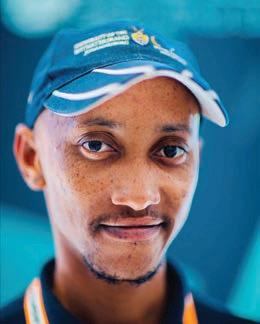
Moepi Setona, founder and CEO at ICT Services company Saya-Setona, says SA Connect has been successful in parts of the
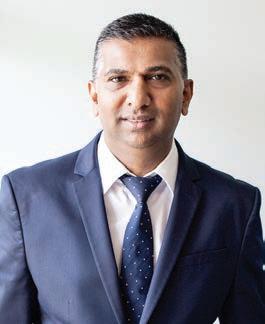
KwaZulu-Natal, North West and Free State provinces. “The project is a bold move. The roll-out is dependent on the internet service providers (ISPs) in those regions deploying the network,” he says.
CONNECTIVITY AND LITERACY ARE DIFFERENT
Professor Judy Backhouse, senior academic fellow at United Nations University Operating Unit on Policy-Driven Electronic Governance, says internet access is a function of technology –having the devices and networks to connect – and economics – being able to pay to use them. It also depends on people knowing how to use the technology and having the capabilities to do so. “Access requires a supportive environment that includes institutions, discourses, programmes and social norms that support the use of the internet. The lack of these enabling conditions leads to information poverty,” she says. “Increasing internet access in South Africa is arguably the first and most important task to ensure that the country can take full advantage of ICTs and smart systems. People need skills to use the technology, including basic computer literacy, the ability to connect a device to a network, how to use email and other tools to communicate, knowledge of search engines, information literacy, online etiquette, and how to stay safe online, among others,” says Backhouse.
There’s a gap there – Setona says he’s never heard of a programme that focuses on what people do after they’ve been connected for the first time. “It’s great to have a deep rural school connected to the internet and given smart devices and electronic boards, but I’ve seen a lot of that hardware gathering dust as teachers were not shown how to use it.”
Govender says the roll-out without digital literacy is senseless. “They have to operate
FAST FACT
As of January 2022, there were 41.19 million active internet users in South Africa, from a population of 60.4 million. That puts internet penetration in South Africa at 68 per cent, a growth rate of just 1.2 per cent from 2021.
Source:
Deloitte Africa
in parallel – being able to use connected services properly is key to education, improving online literacy and bridging the digital divide in South Africa.”
Setona cites one success story – the roll-out of the “Let’s Talk” mobile service, which enables communities to log problems with their local municipalities and access information about service delivery. “There’s been plenty of education before people download the app or interact with the service, which has helped drive many positive outcomes,” says Setona. “Once people understand the benefits of the app, they adopt it quickly – and can move on to other applications and services to help them unlock economic opportunities.”
DIGITAL EMPOWERMENT IMAGES: SUPPLIED EMPOWERMENT 34
“Access requires a supportive environment that includes institutions, discourses, programmes and social norms that support the use of the internet.” – Professor Judy Backhouse
Kevin Govender
Moepi Setona
Professor Judy Backhouse

WHAT COMPLIANCE MEANS FOR SMES
B-BBEE can serve as a powerful stepping-stone for business growth, particularly for small and medium enterprises that aim to work closely with large corporates and government departments, writes DAVID MOROBE , executive general manager for impact investing at Business Partners Limited
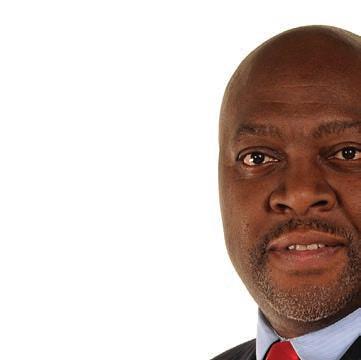
The broad-based black economic empowerment (B-BBEE) policy system provides the country with a growth strategy that aims to promote a more equitable and economically inclusive society that will help South Africa realise its full economic potential. Small and medium business enterprises (SMEs) – as economic drivers and engines for job creation – have an important role to play in contributing towards this national objective, so it’s key that business owners familiarise themselves with the fi ve B-BBEE basics.
1. Does your SME qualify for B-BBEE scorecard completion?
There are currently two categories within which most South African SMEs fall in terms of B-BBEE.
The fi rst is exempted micro-enterprises, which have an annual turnover of less than R10-million – these businesses are currently not audited in terms of their B-BBEE status. The second is qualifying small enterprises (QSEs) – businesses with an annual turnover of between R10-million and R50-million.
2. How a BEE scorecard works QSEs are evaluated according to fi ve B-BBEE codes. These are ownership, skills development, management control, enterprise and supplier development, and socioeconomic development. Each of these is equally weighted at 25 points, resulting in a score out of 100 points.
• The ownership score measures the percentage of the SME that is owned by black individuals and is evaluated as at the date of B-BBEE verifi cation.

• Management control is determined by payroll details and is measured according to the level of control that black employees hold within an SME.

• An SME’s skills development code measures the extent to which employers support ways in which the competencies and skills of black employees can be improved.
• A business’s socioeconomic development measurement is determined at year-end and concerns the extent to which an SME carries out specifi c initiatives that contribute towards better economic access for black individuals.
• Finally, enterprise and supplier development is measured by the extent to which an SME procures goods and services from suppliers with B-BBEE recognition, whether an SME takes measures to develop other enterprises and assists suppliers to become more economically sustainable.


3. Level up
Your scorecard will determine your B-BBEE status or the level at which are you recognised. Level 1 companies have scores of 100 points and above. The lowest level, level 8, applies to companies with less than 39.99 points.
4. Fast track to better B-BBEE
If a QSE is 100 per cent black-owned, it will automatically qualify for level 1 status. If it is at least 51 per cent black-owned, it will qualify for an automatic level 2 B-BBEE status.






And if a QSE is less than 51 per cent black-owned, it will be rated according to the scorecard and must be verifi ed by a South African National Accreditation System B-BBEE rating agency.
CHANGING LEGISLATION AND WHAT IT MEANS FOR YOUR SME

With the changes to legislation set to be concluded later in 2022, a research note by consultancy fi rm Songhai Advisory
forecasts that the bill will allow the state to set employment equity targets for certain business sectors. Most signifi cant for the majority of South African businesses is that the bill will require the government to limit the issuing of contracts to businesses that are not compliant with B-BBEE law.
Therefore, if a large component of your business model rests on securing state tenders and becoming a supplier to government, it is important that you work towards being B-BBEE-compliant. Several large corporates have also developed policies that make B-BBEE compliance a mandatory requirement for their suppliers. In addition, as a B-BBEE-compliant SME, you will gain access to several favourable tax gains and,
in general, will be better positioned to attract more business opportunities.
THOUGHT LEADERSHIP: BEE BASICS IMAGES: SUPPLIED EMPOWERMENT 36
Most significant for the majority of South African businesses is that the bill will require the government to limit the issuing of contracts to businesses that are not compliant with B-BBEE law.
IMAGES: SUPPLIED
David Morobe

